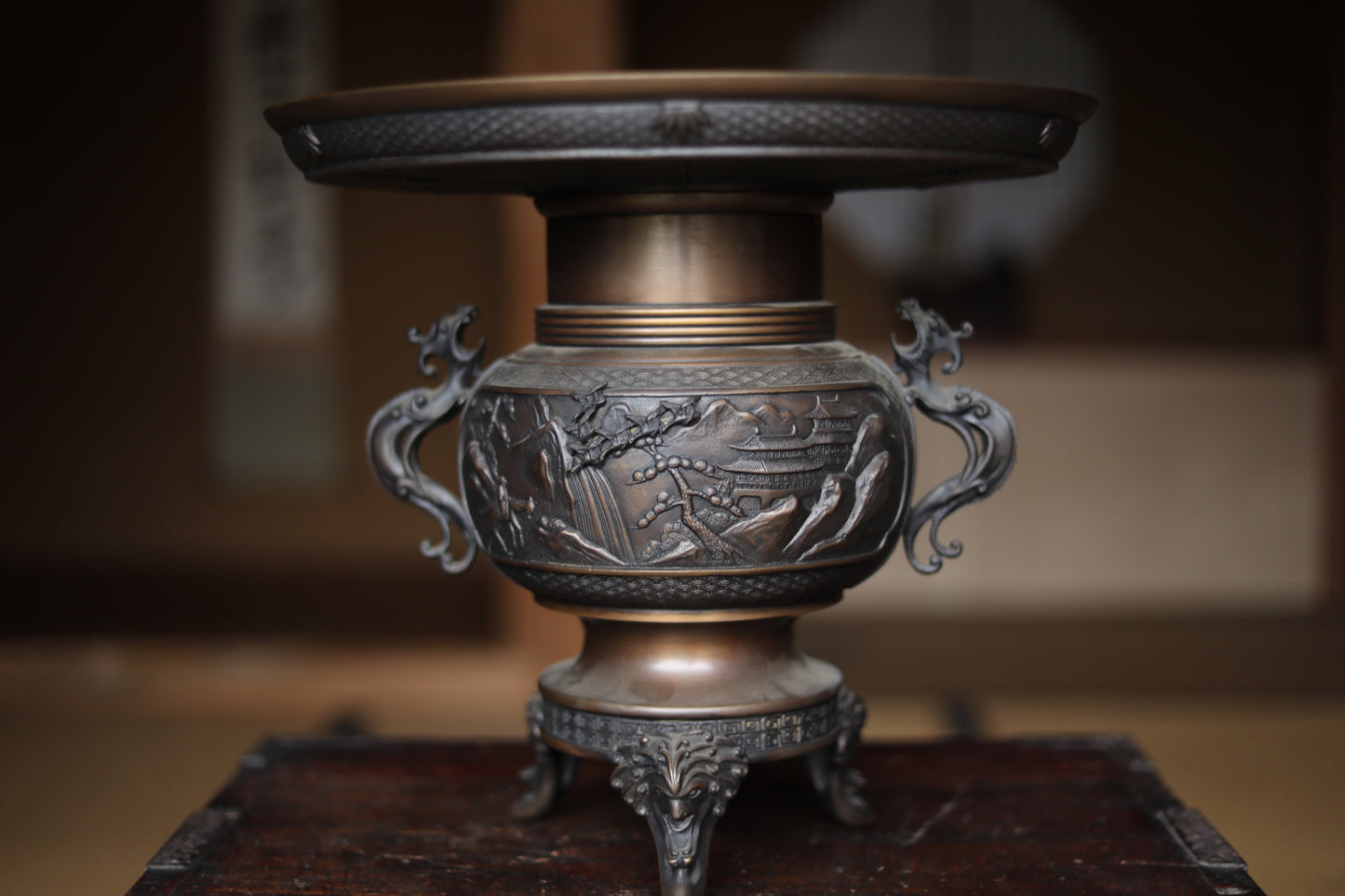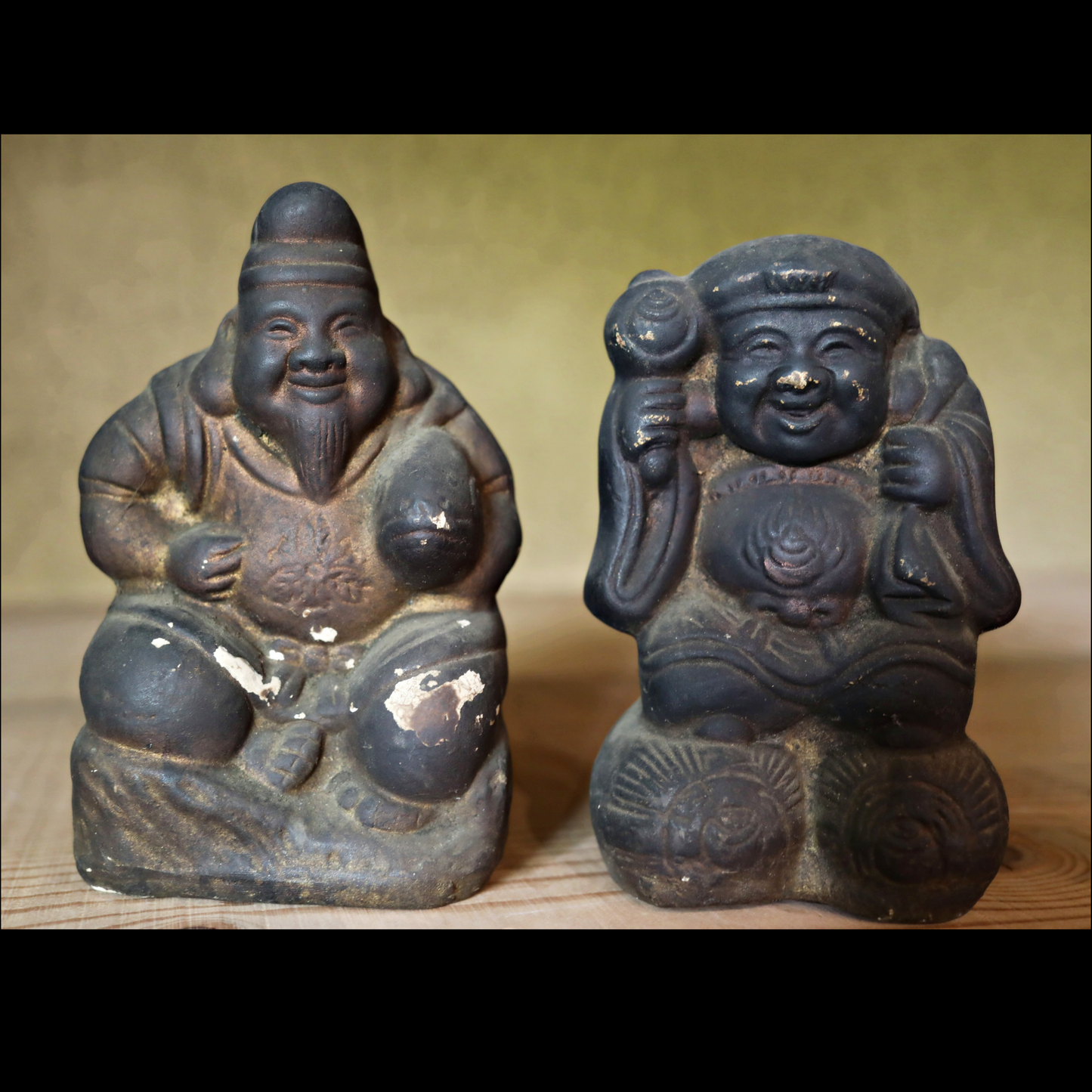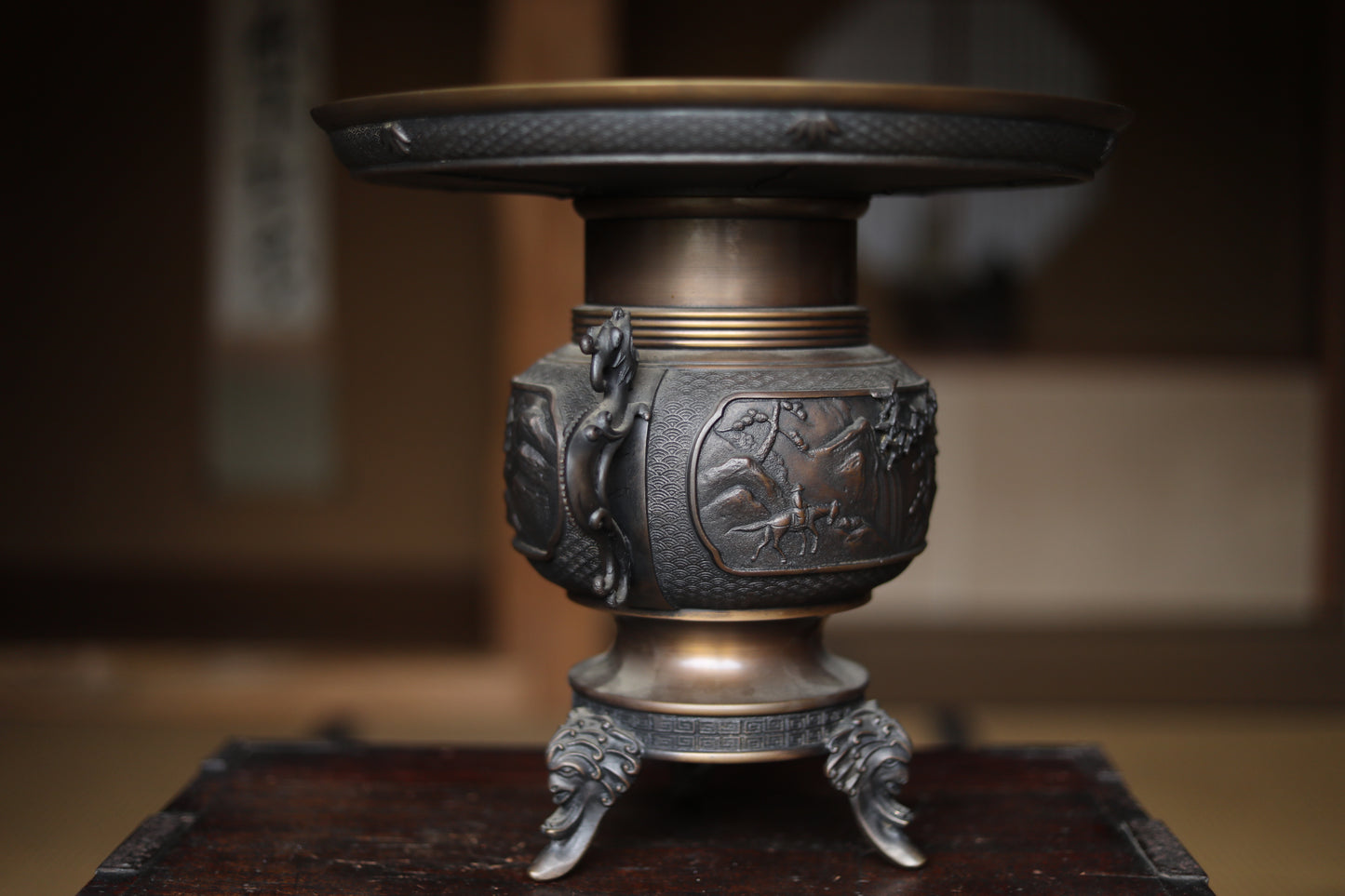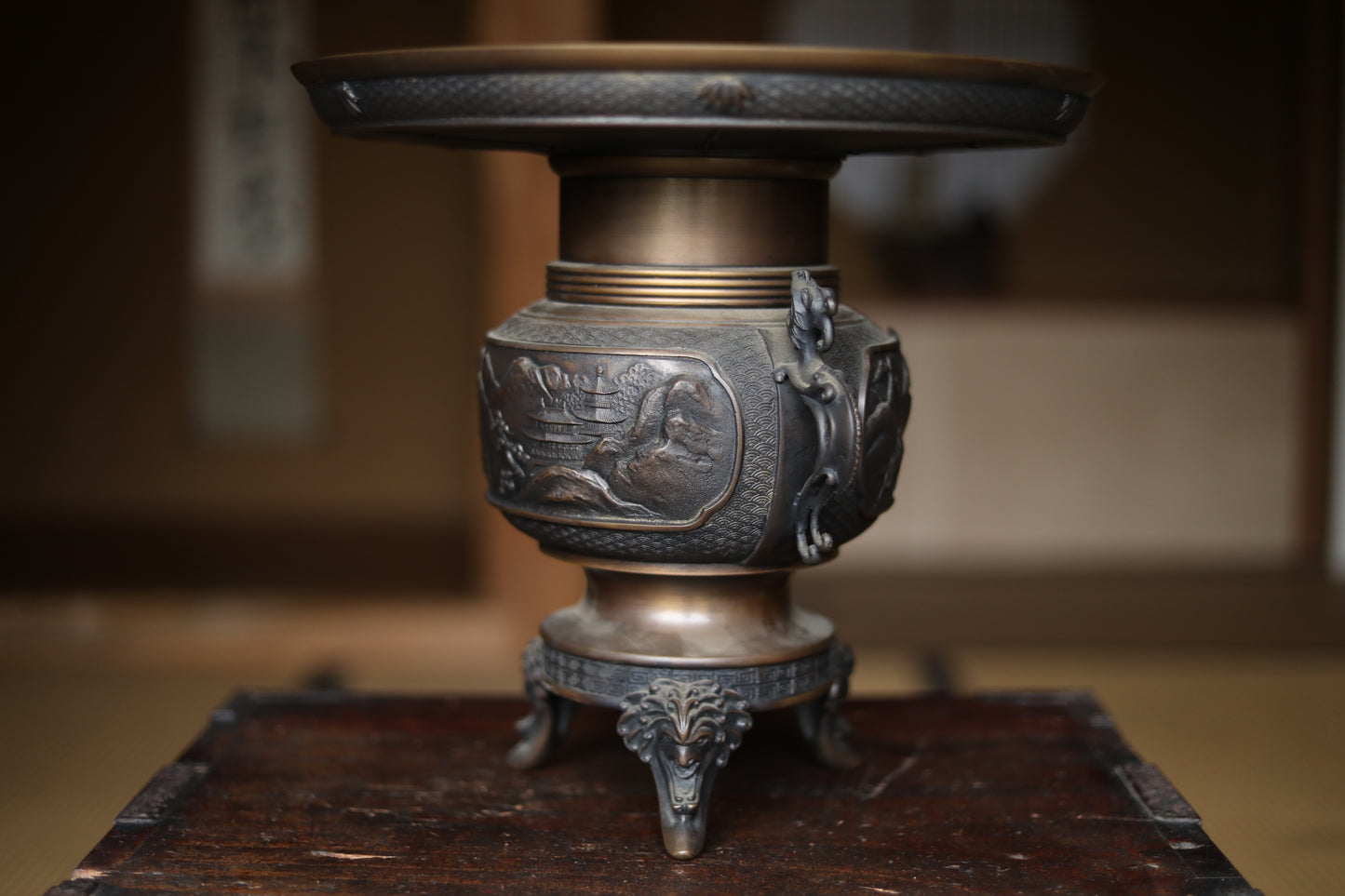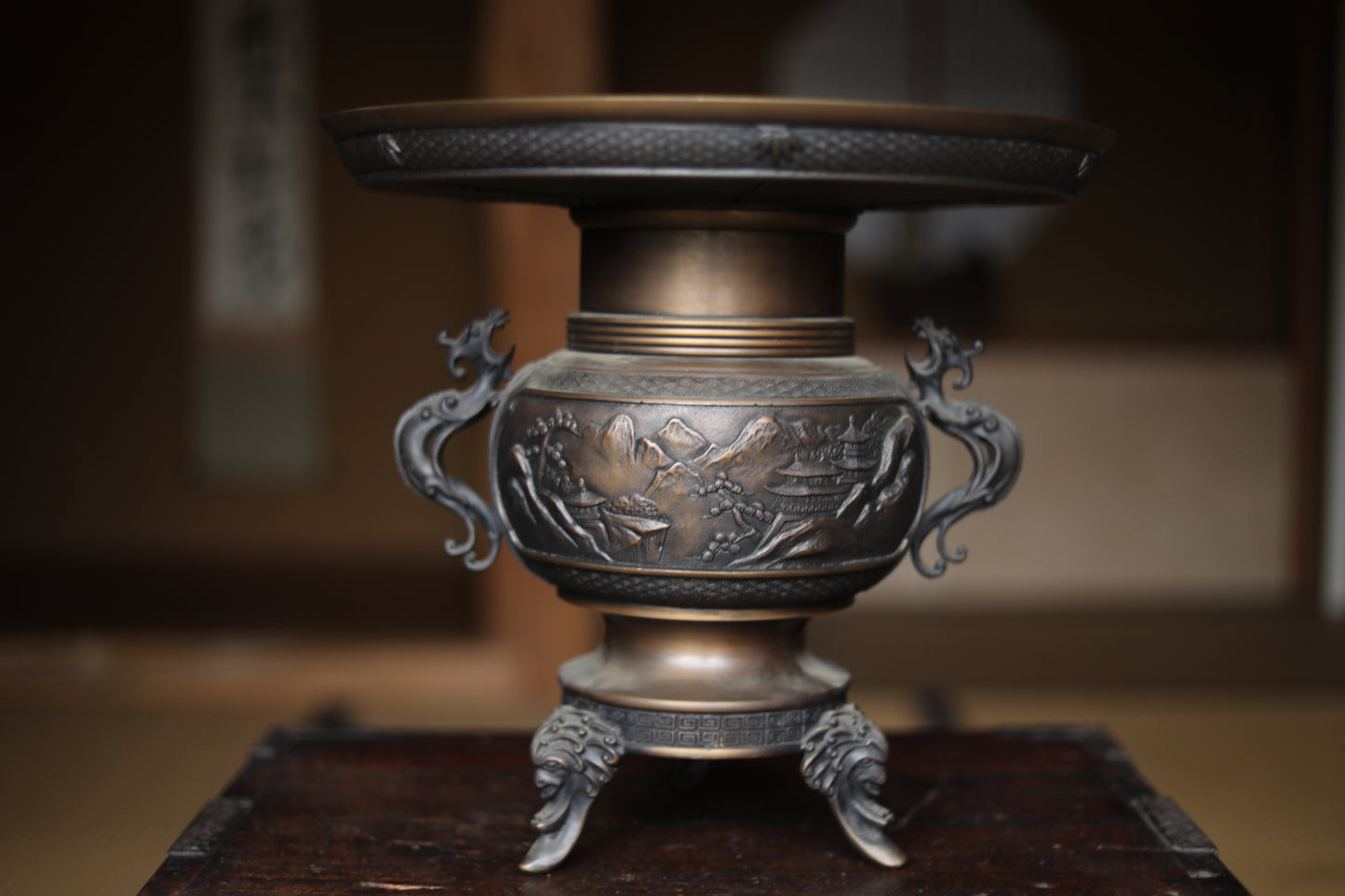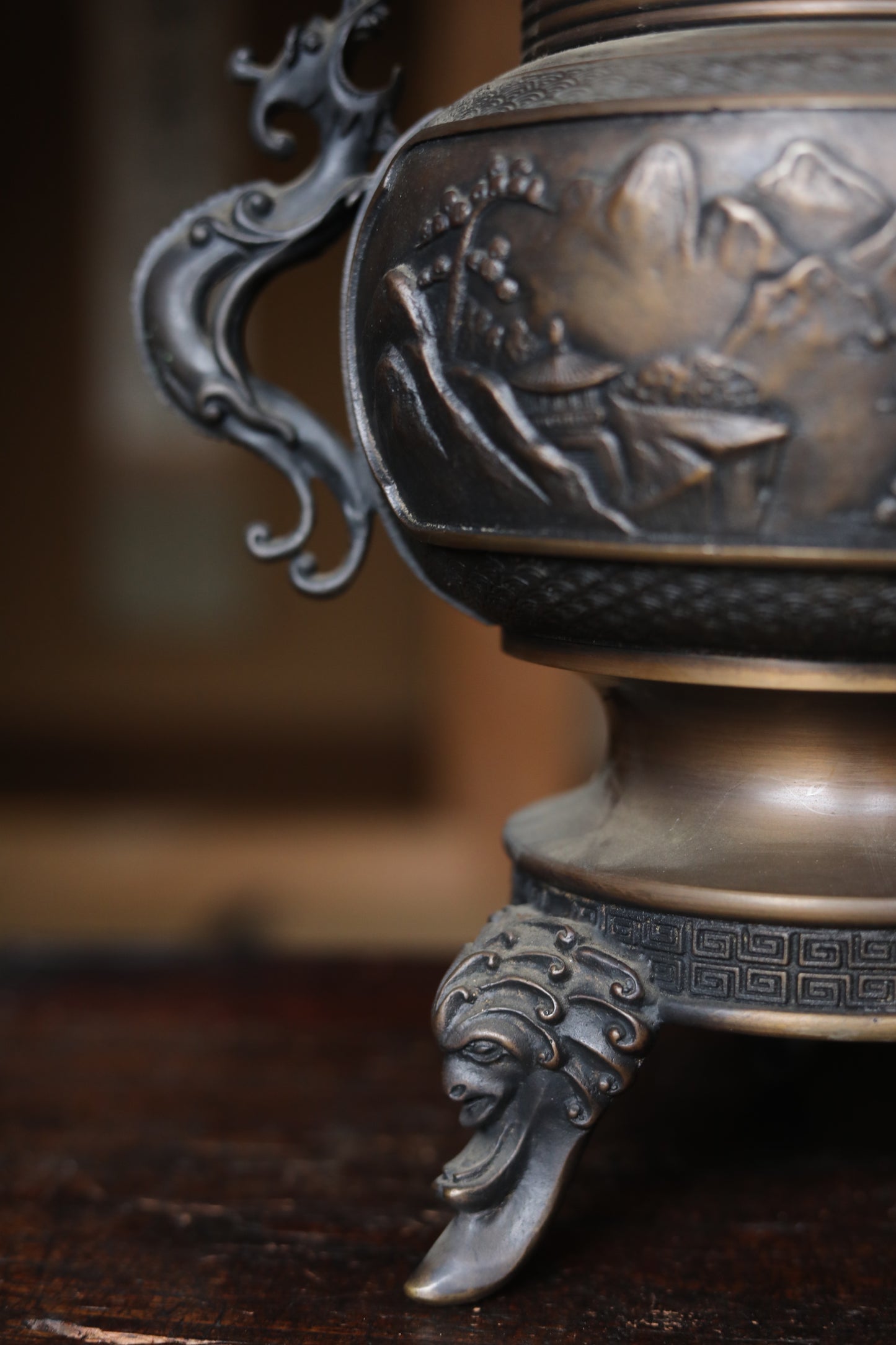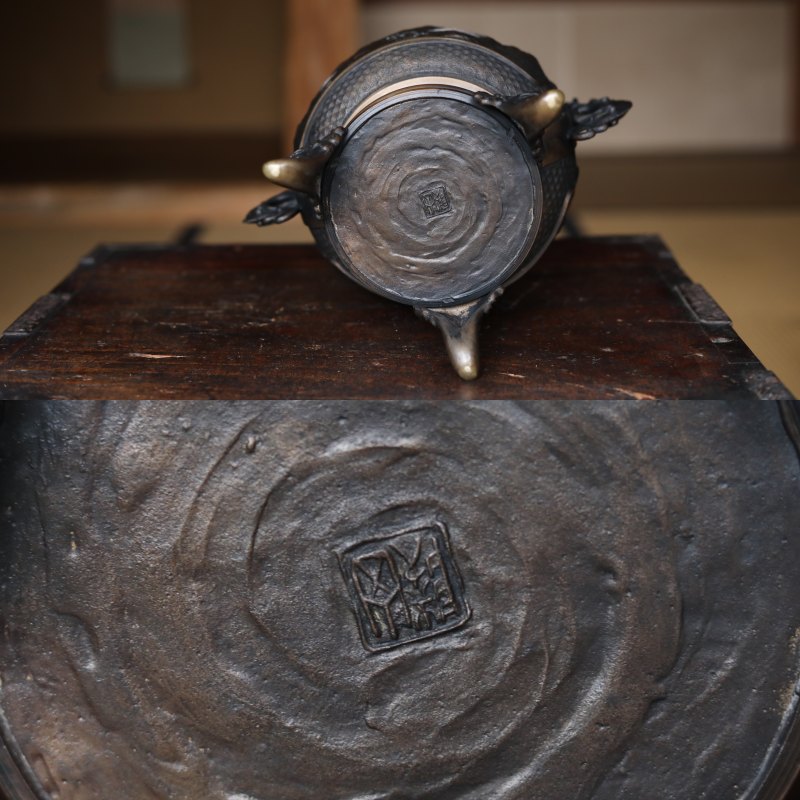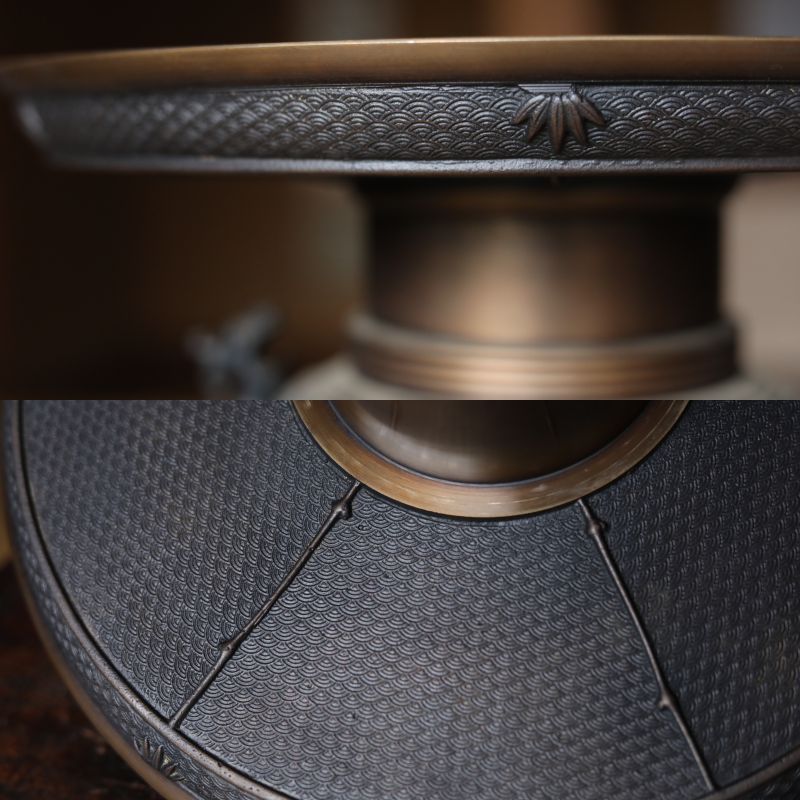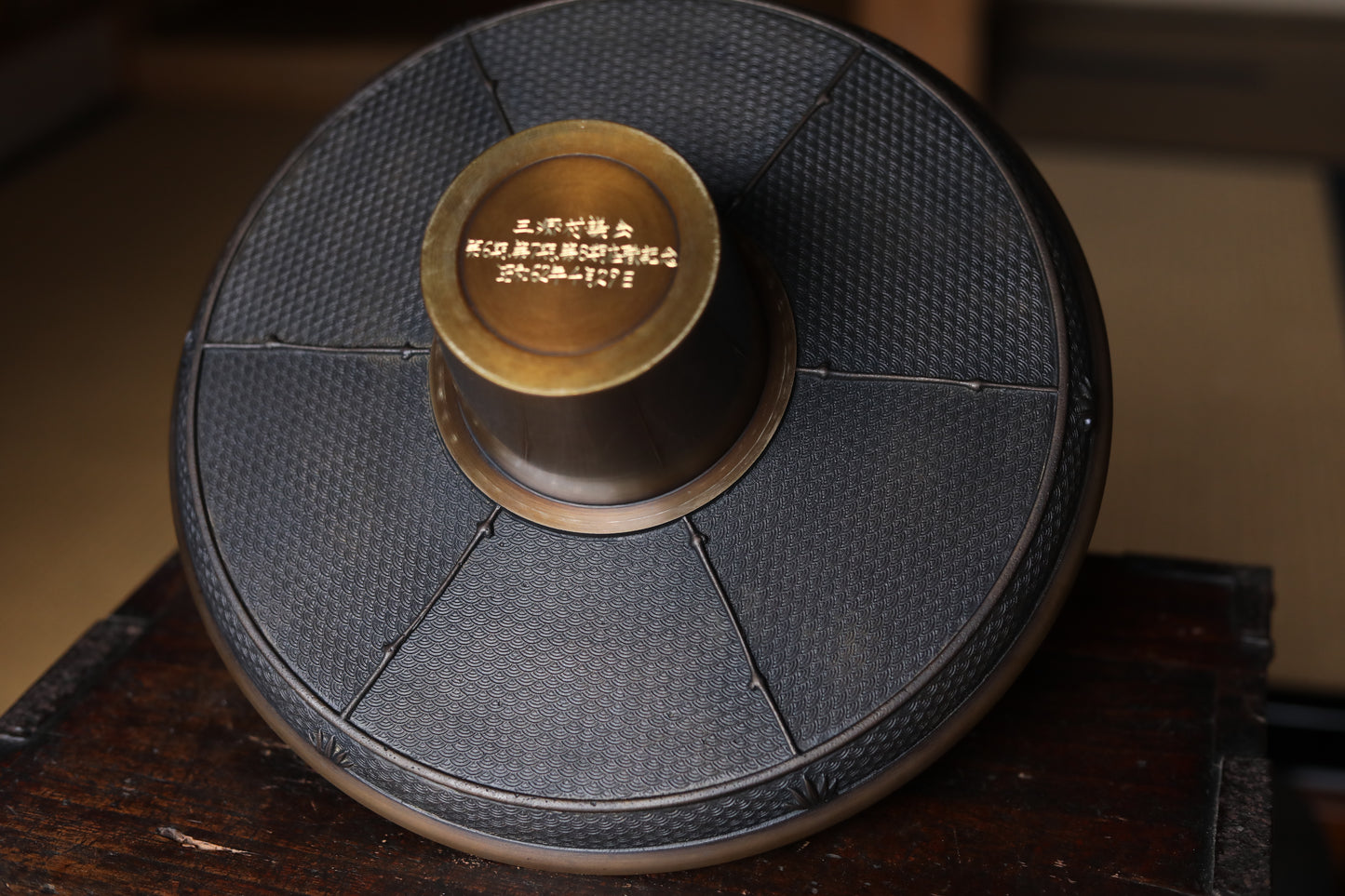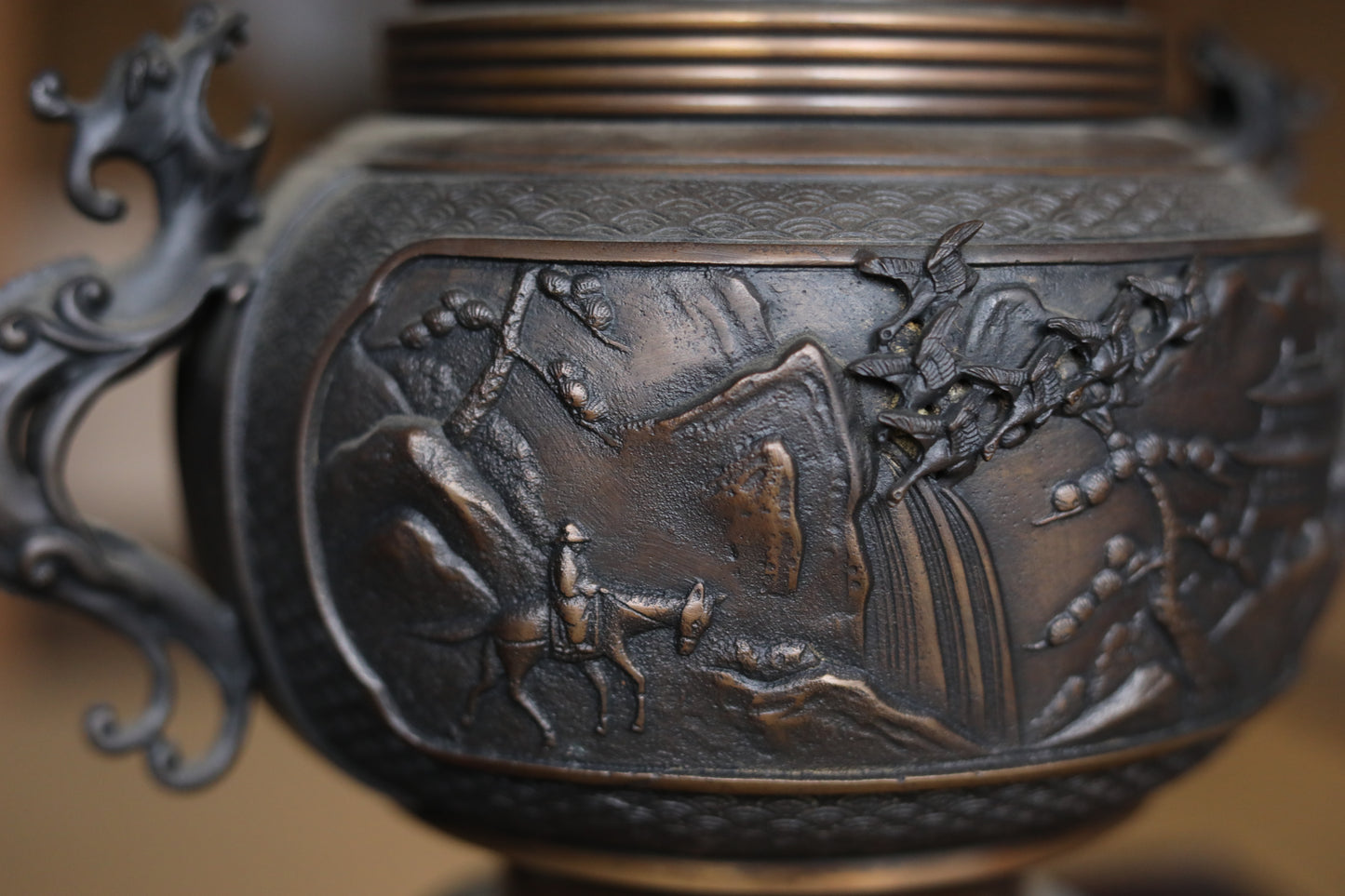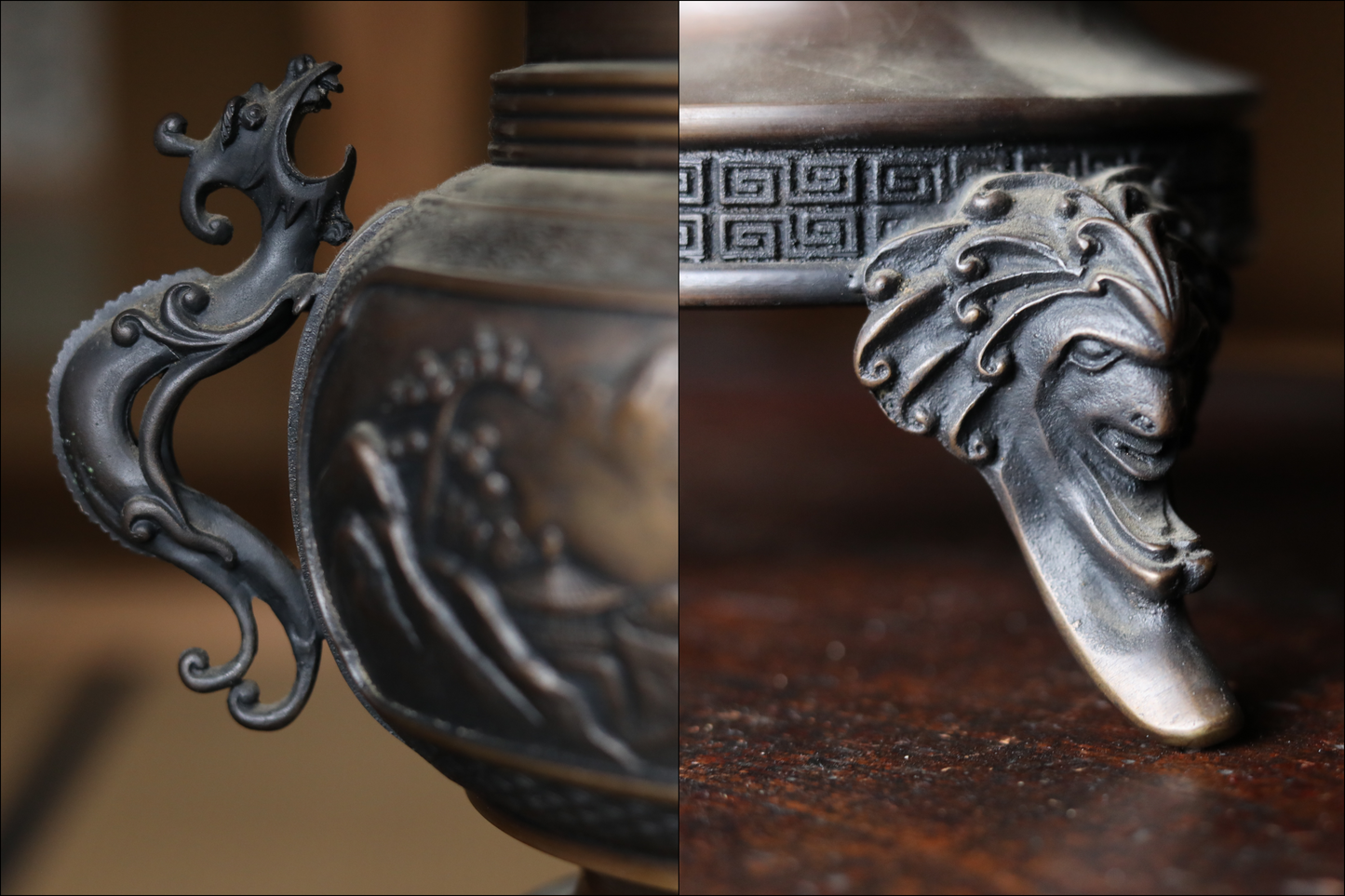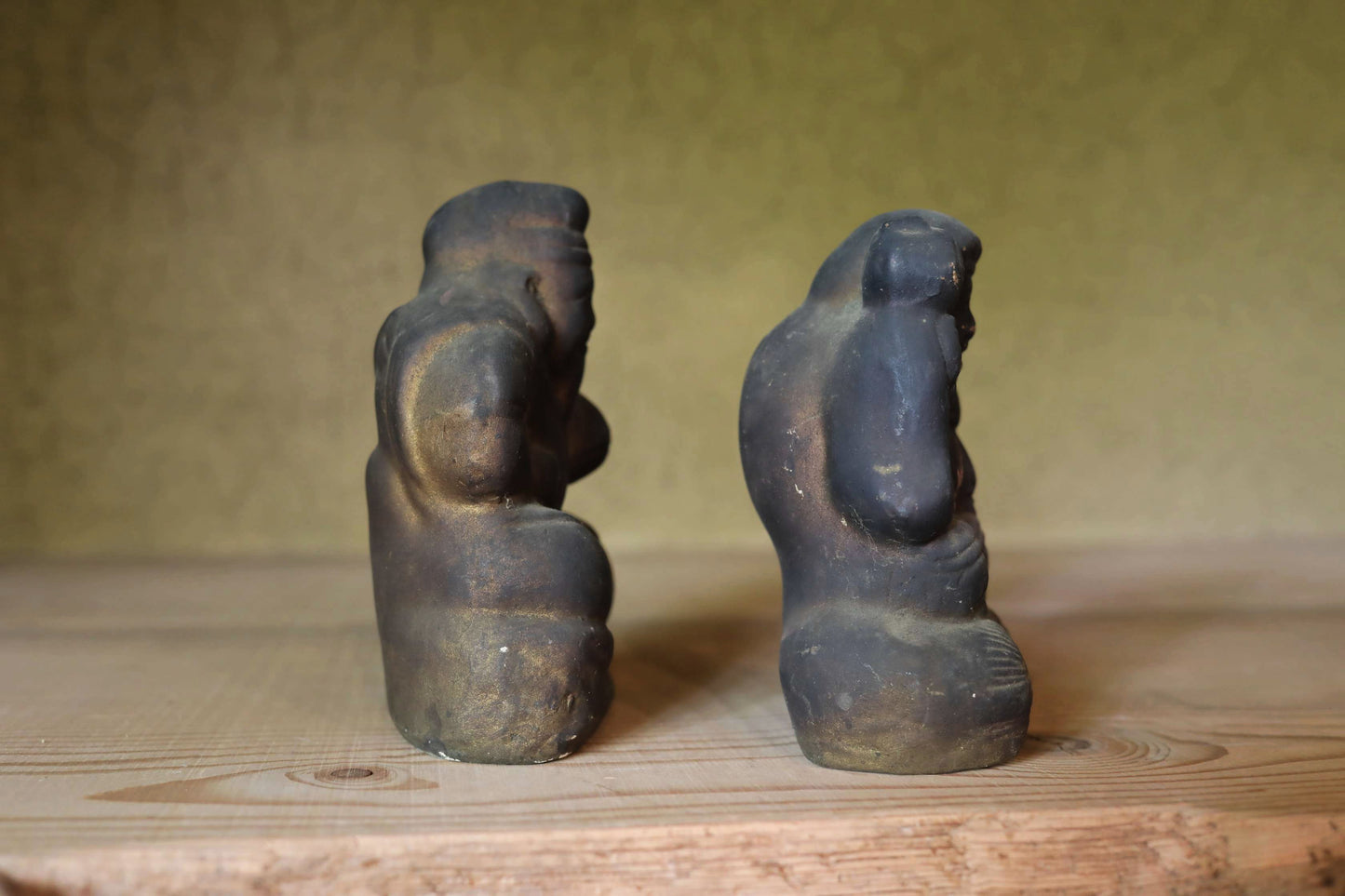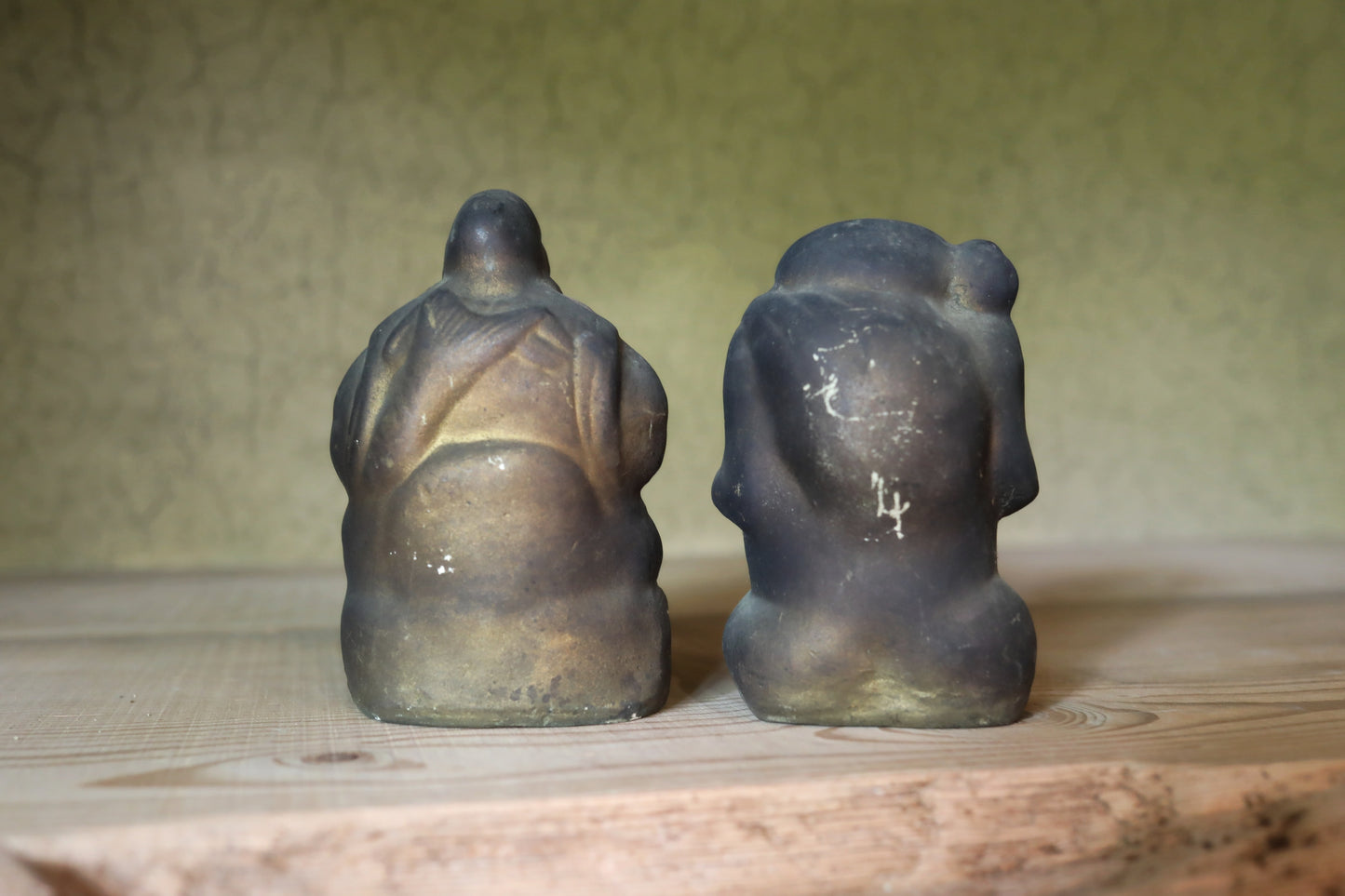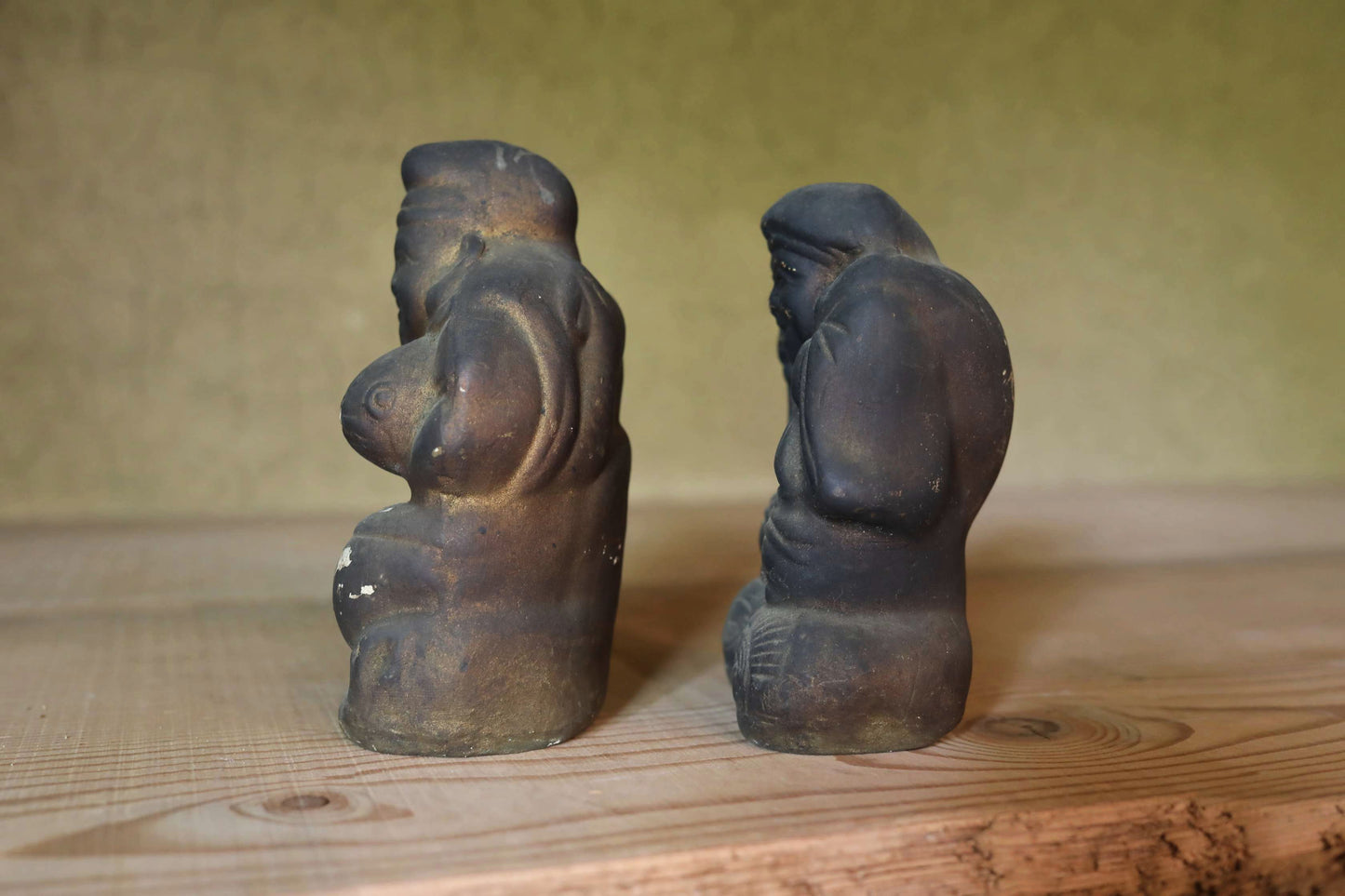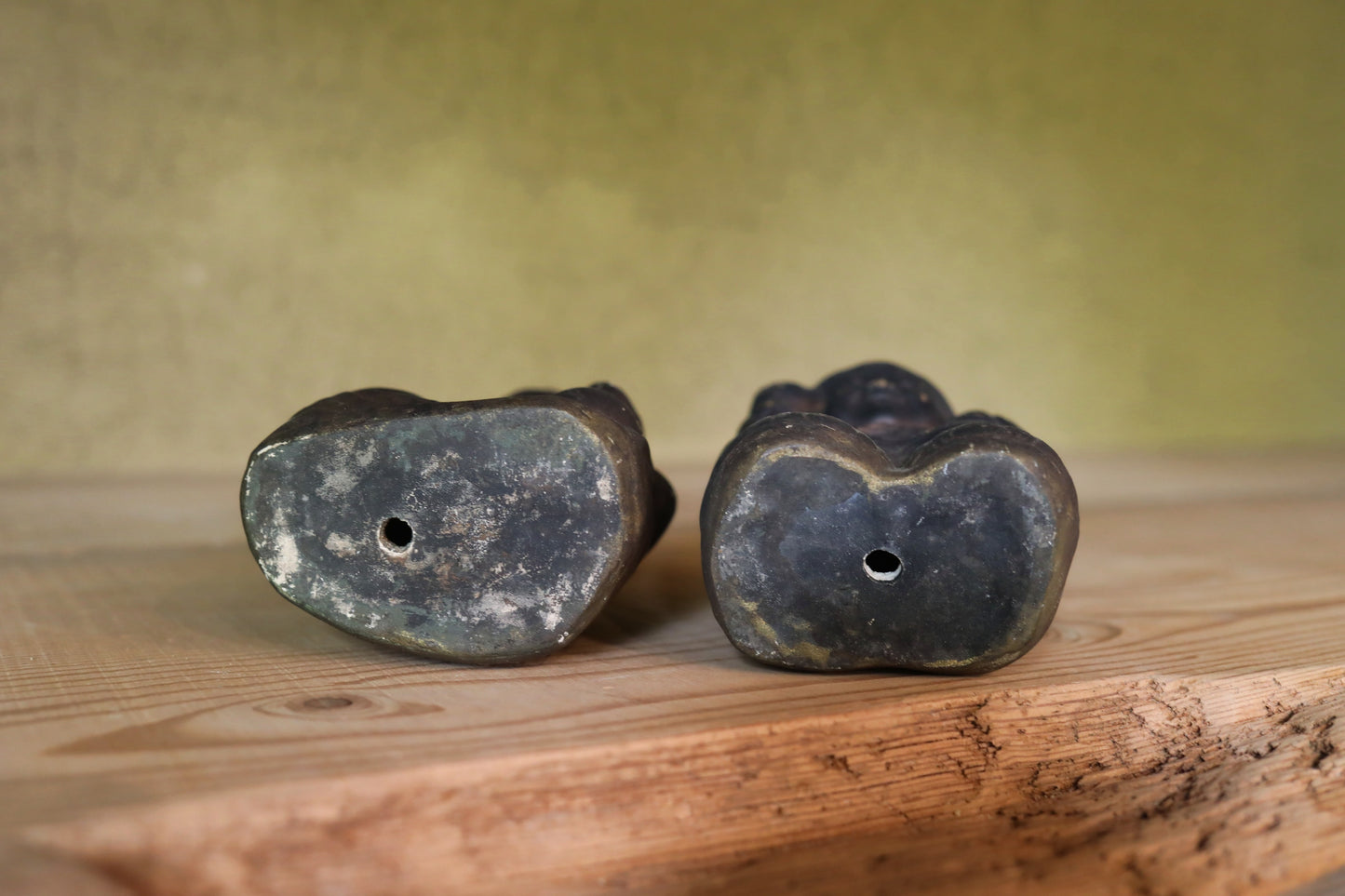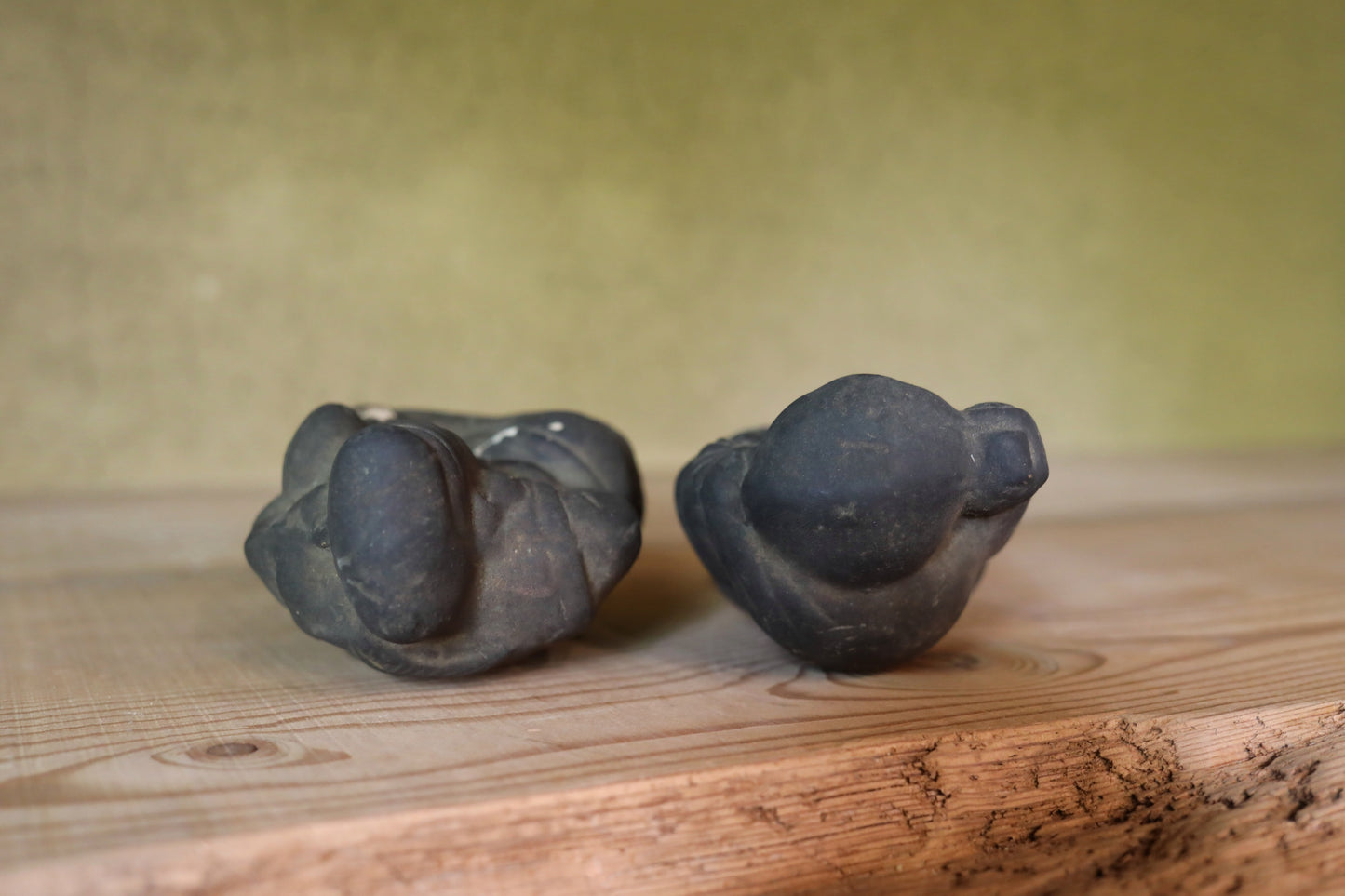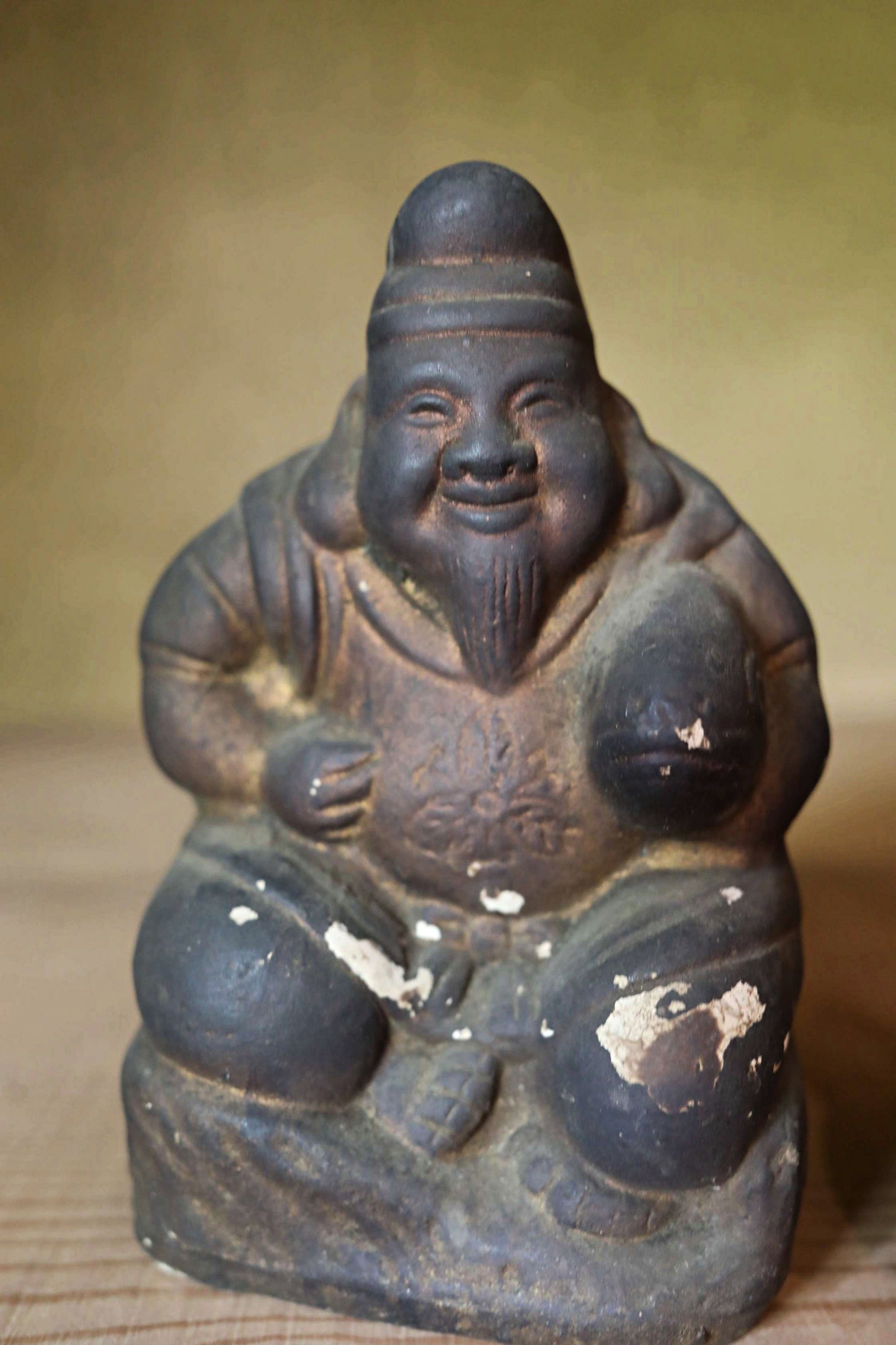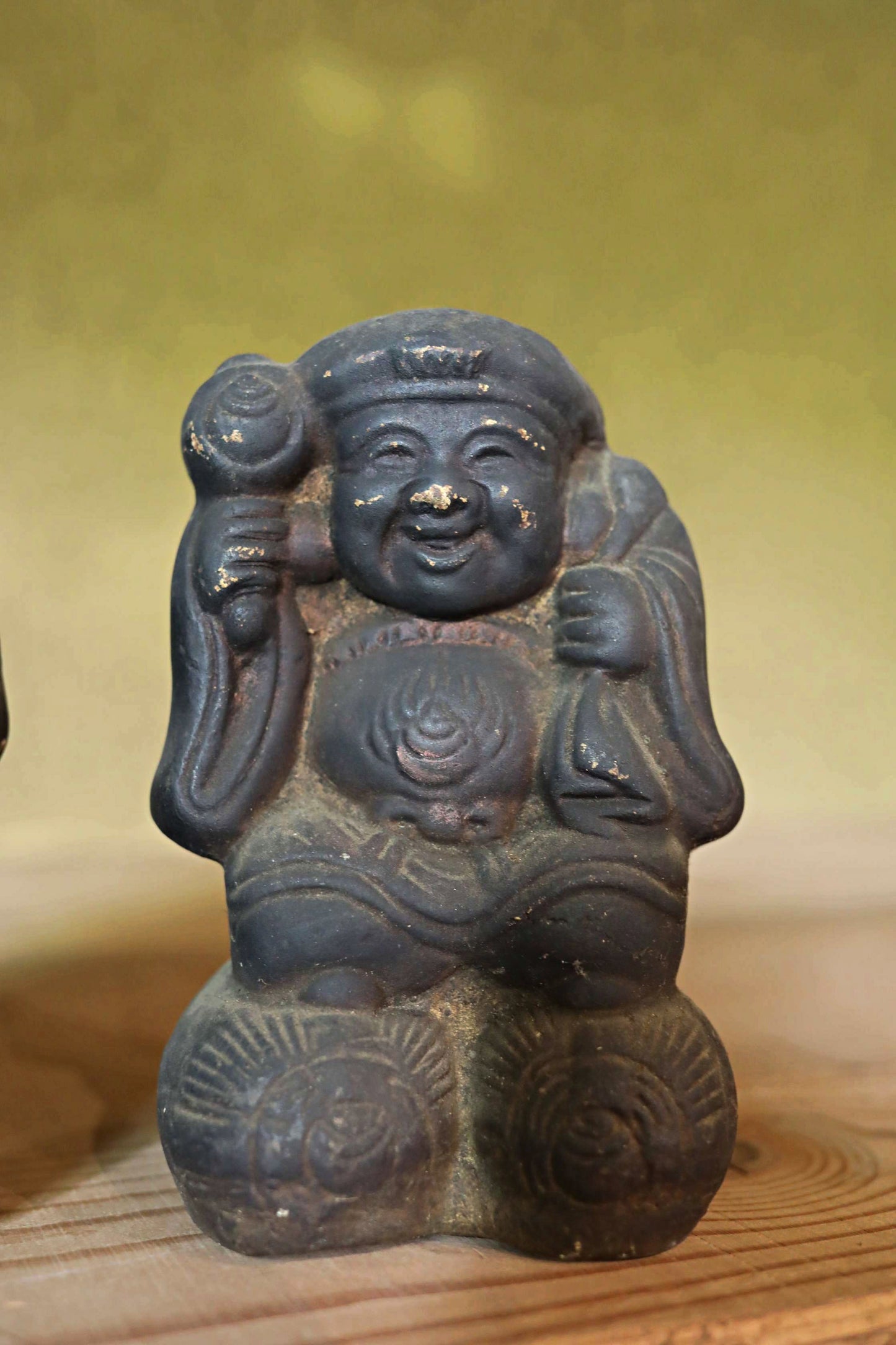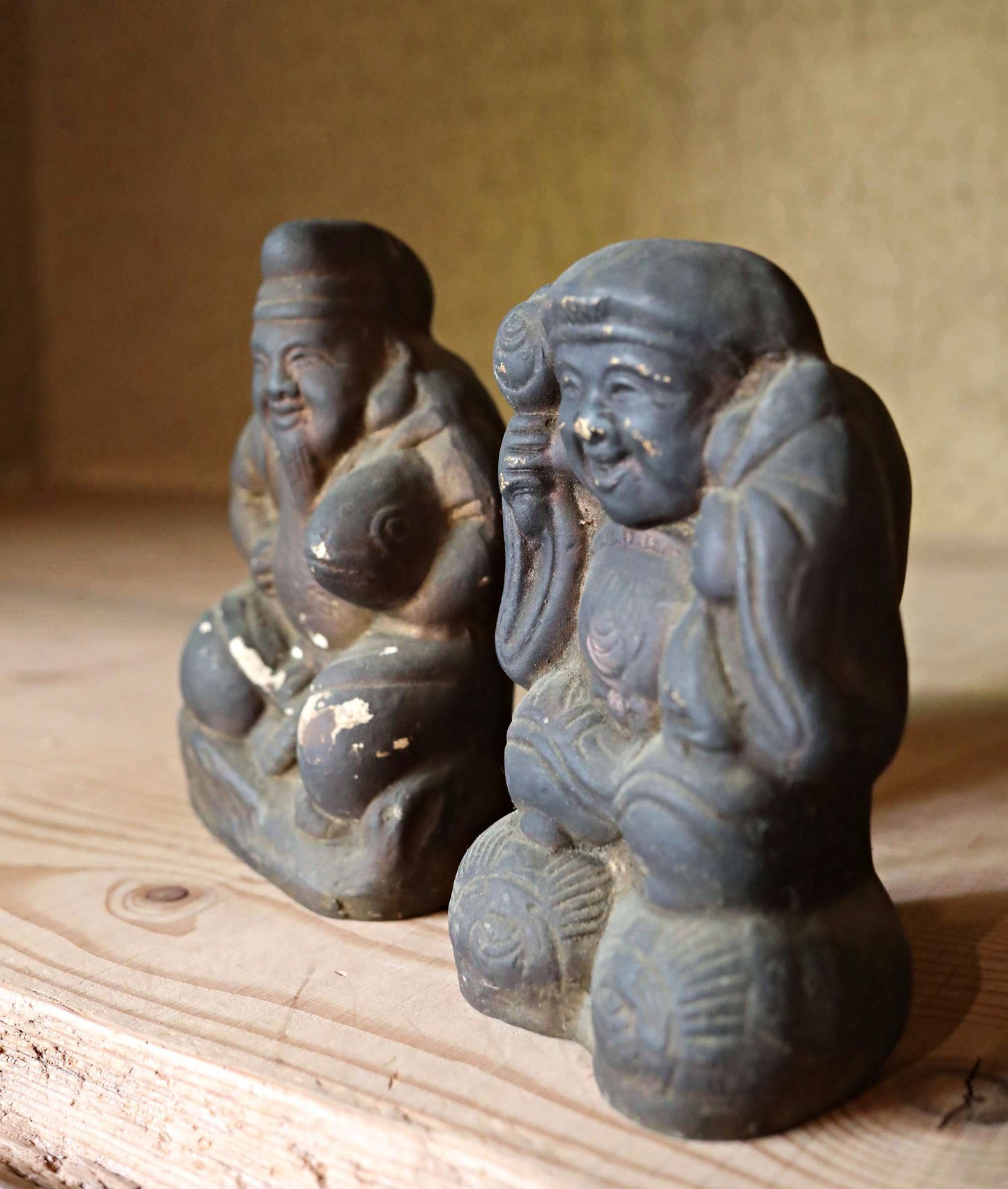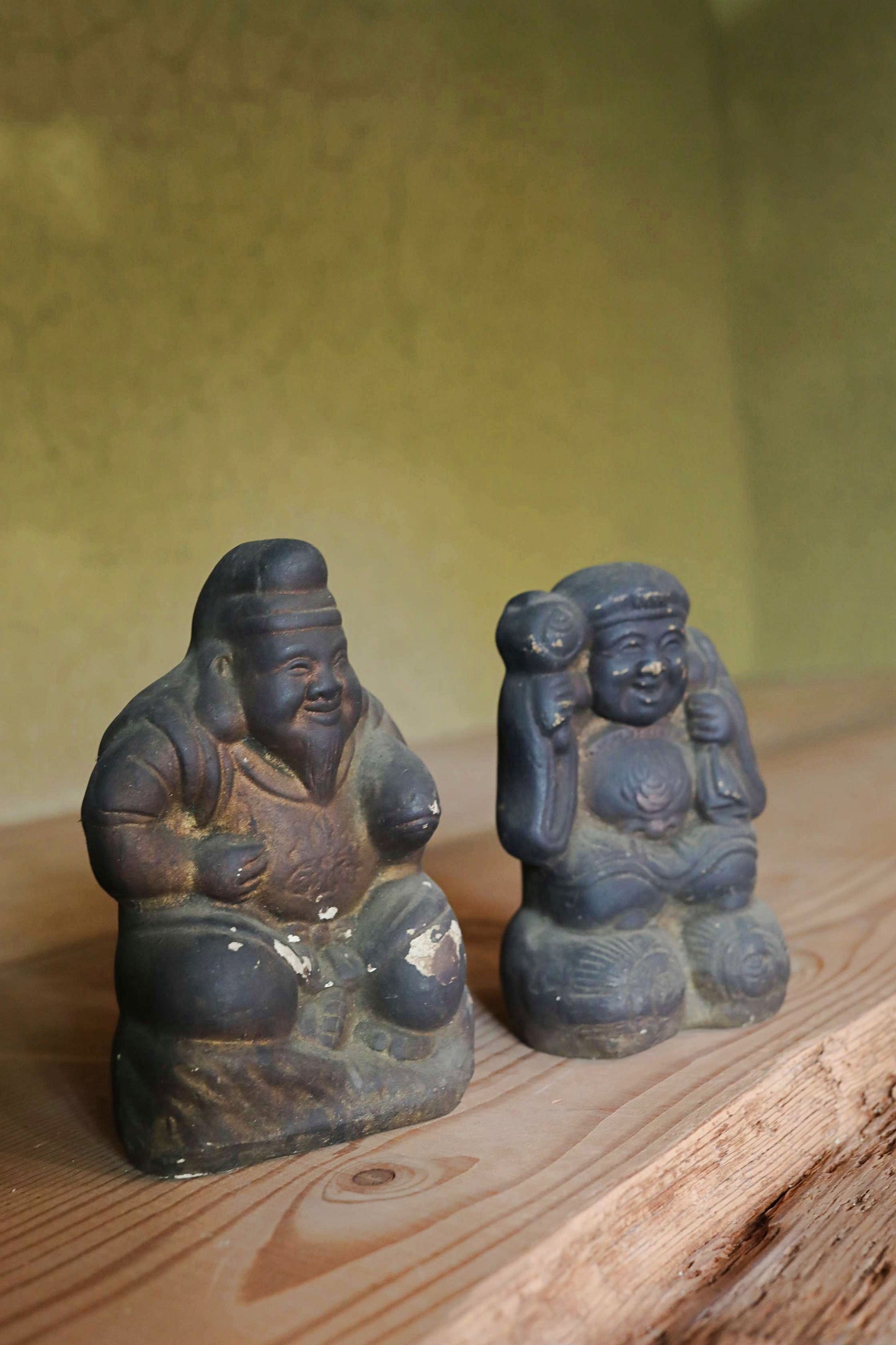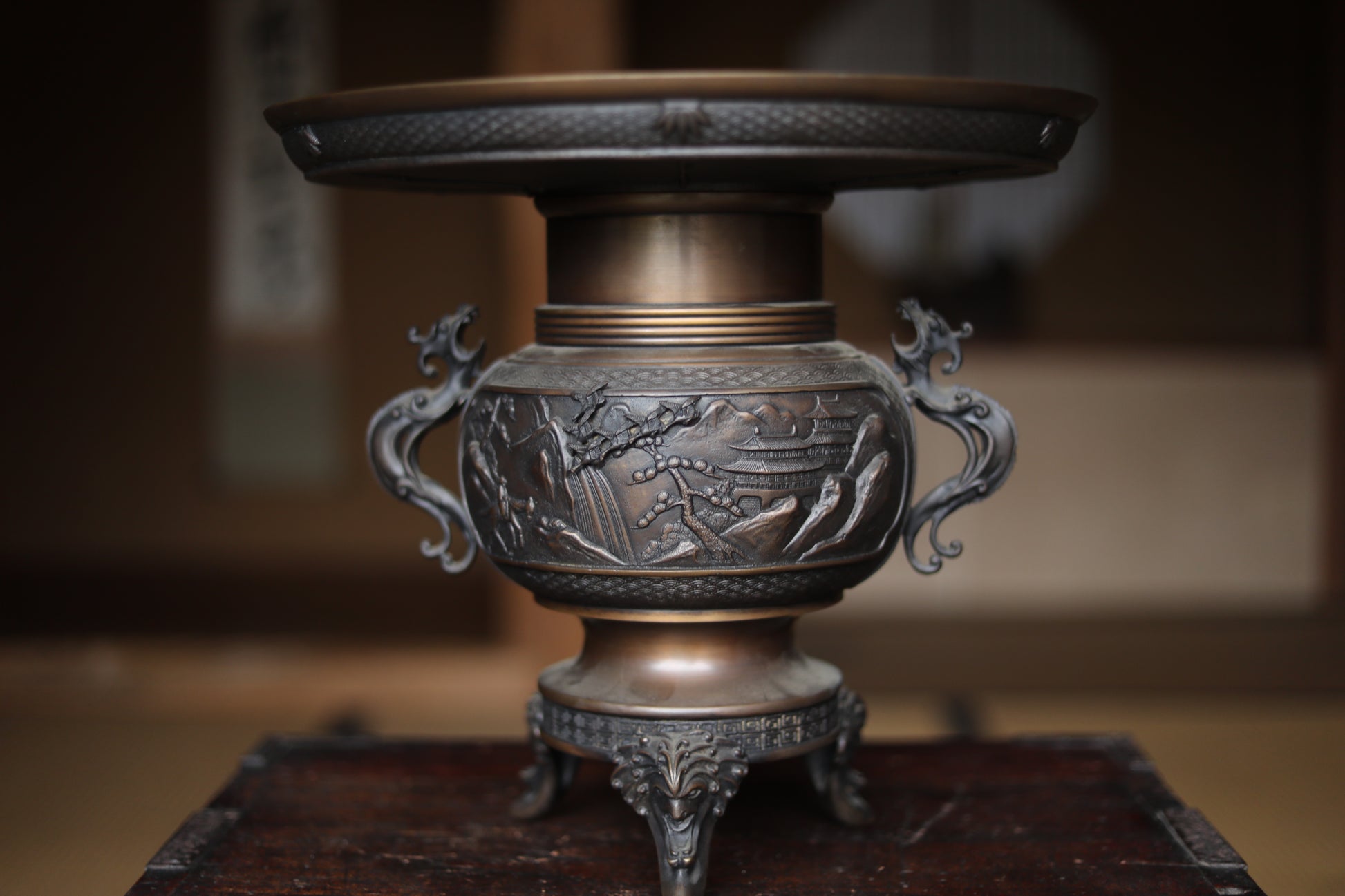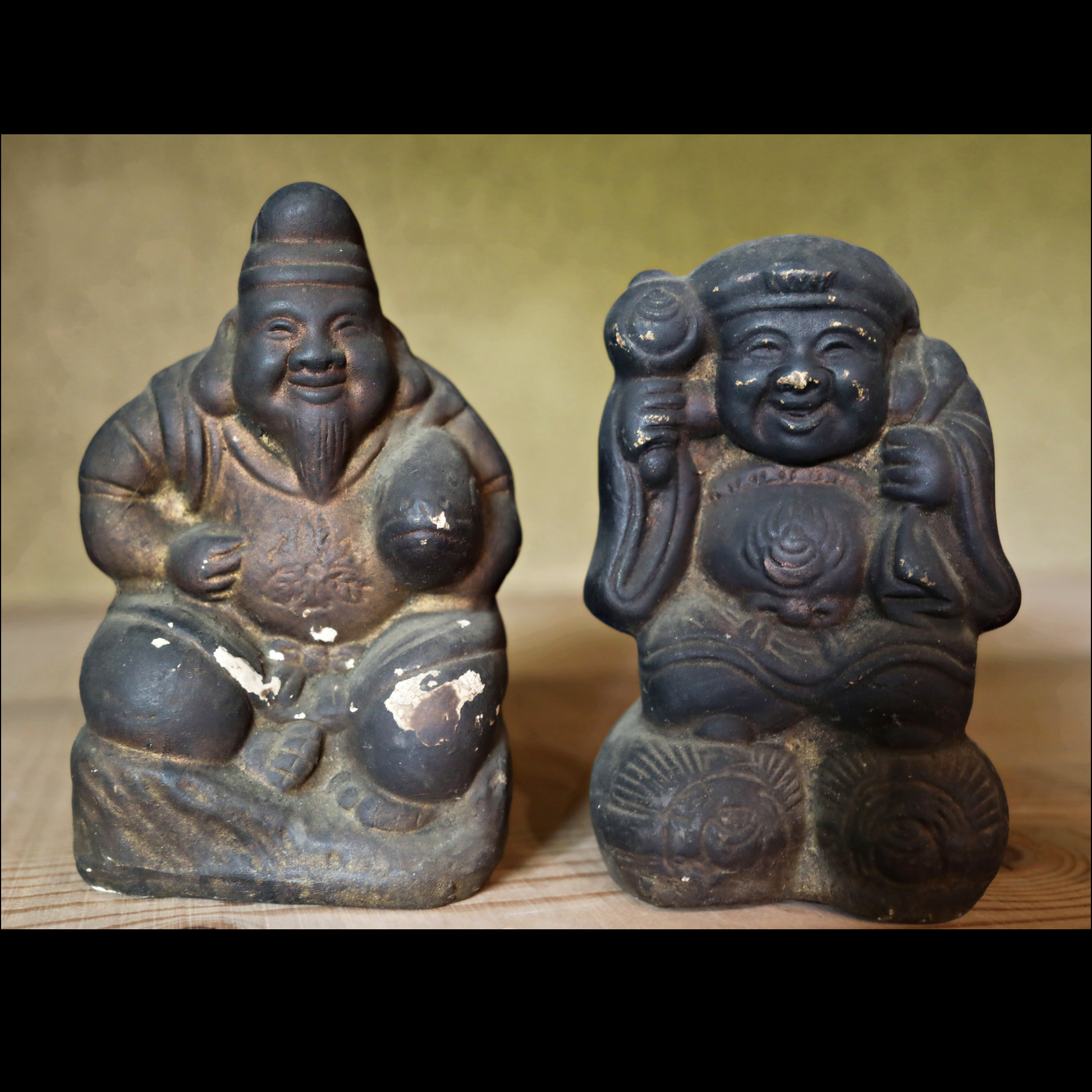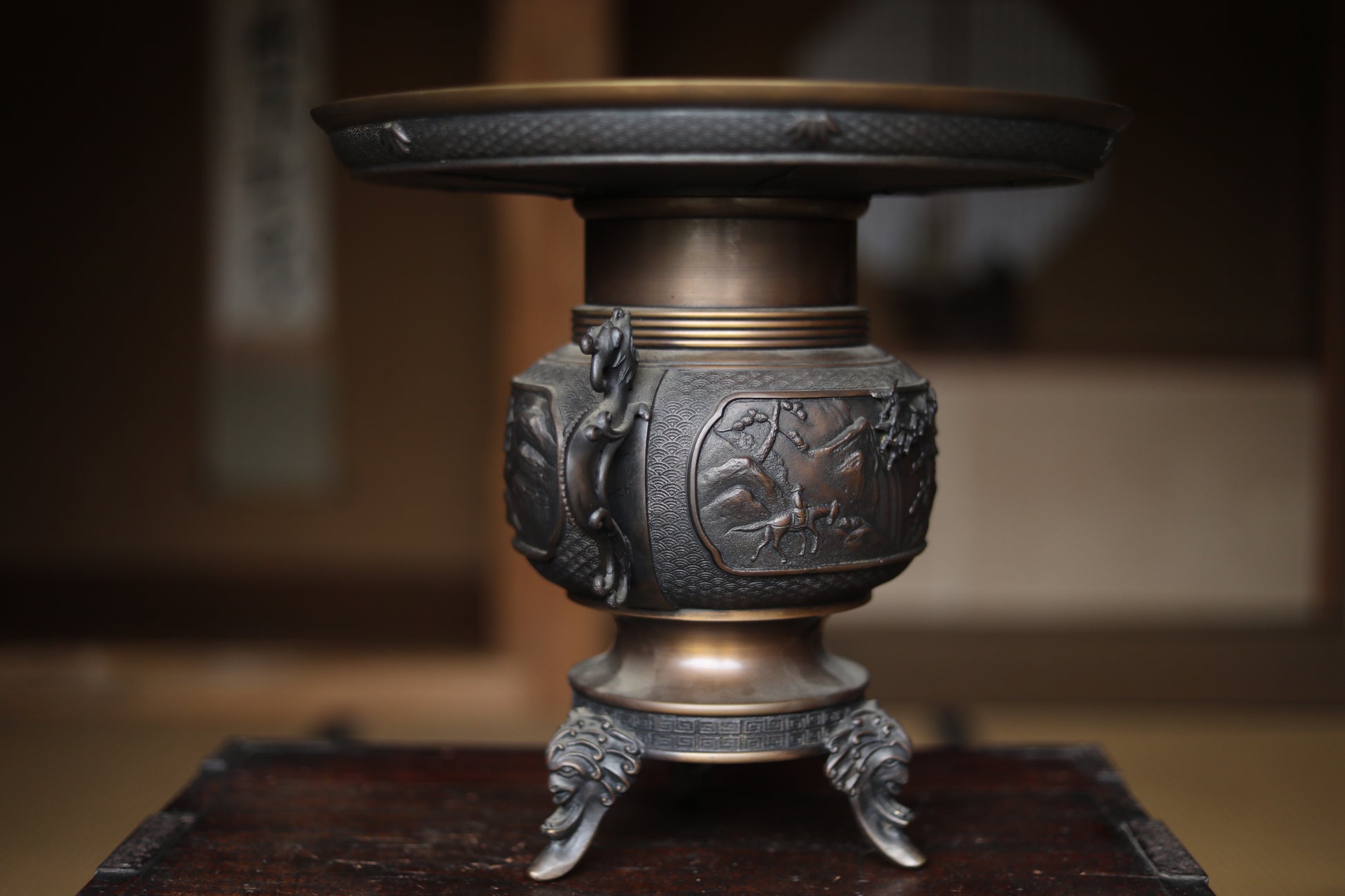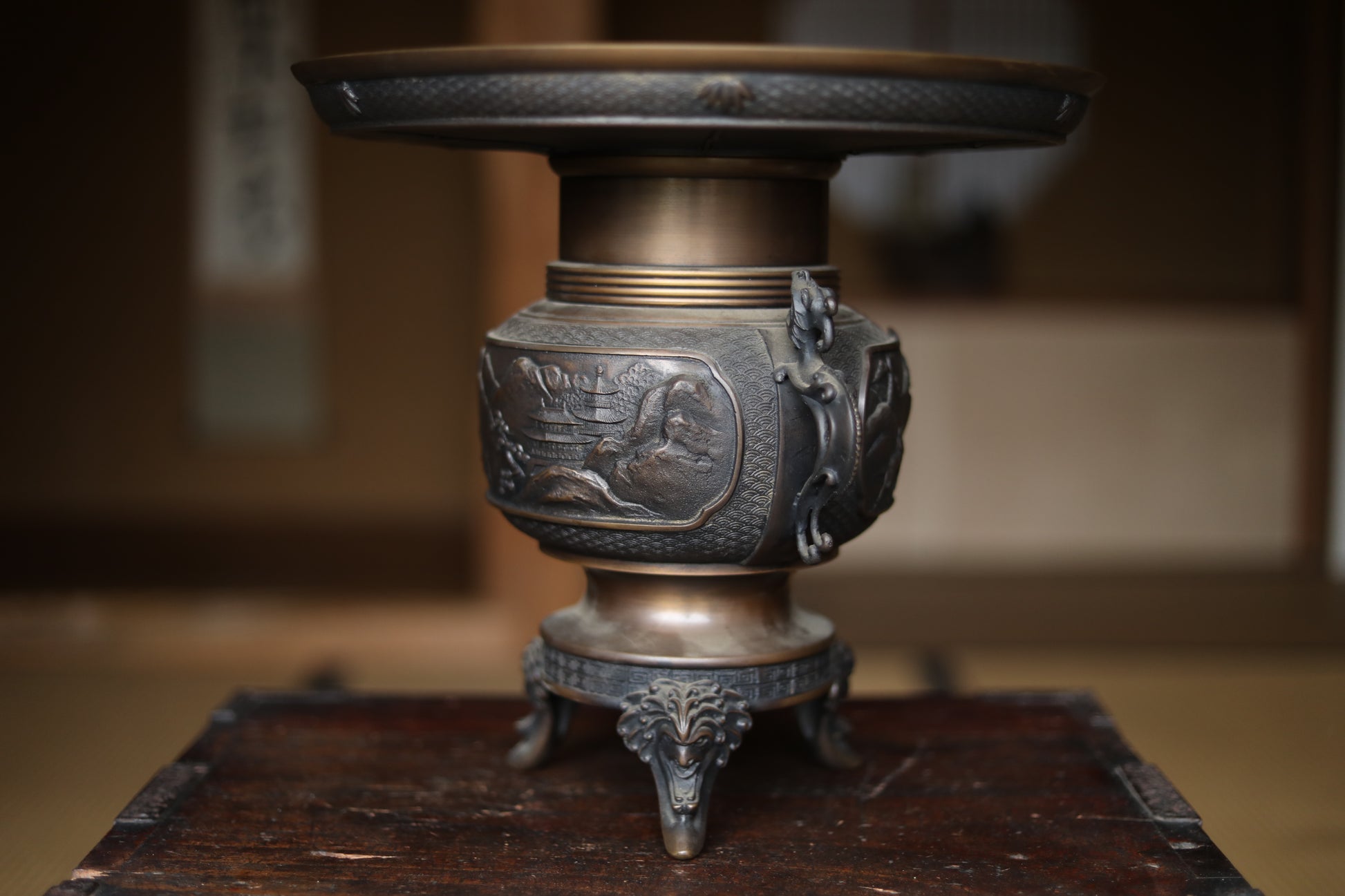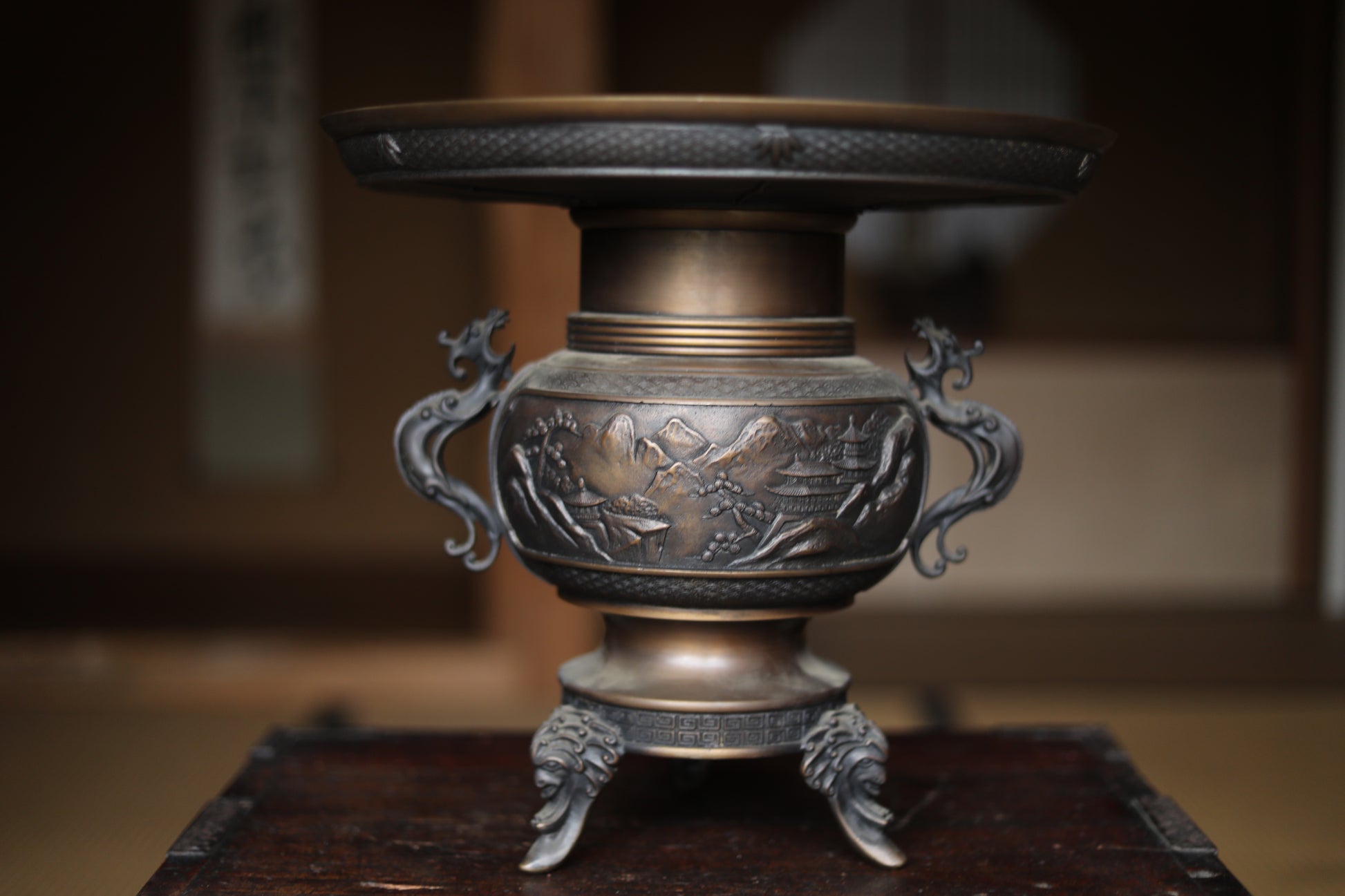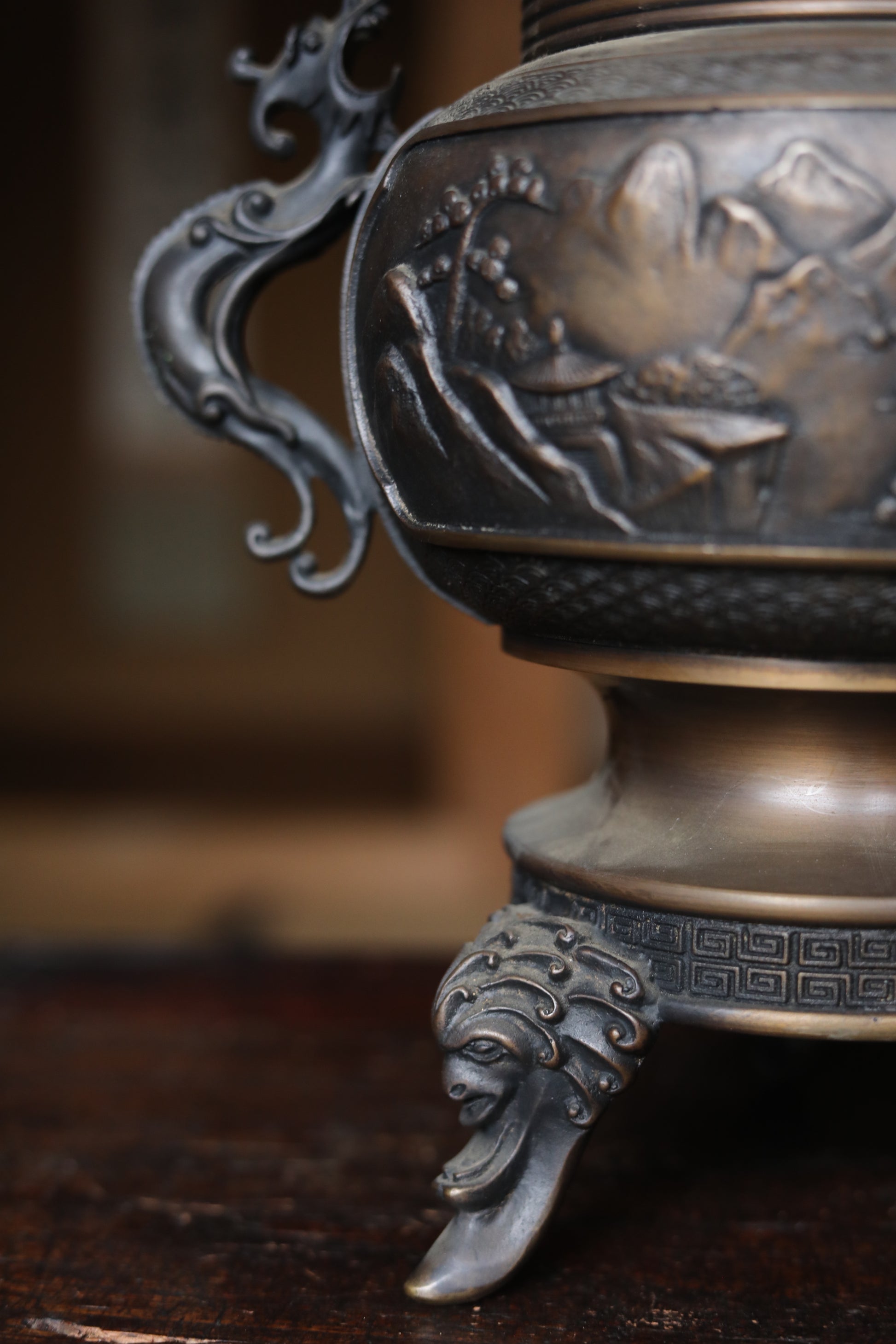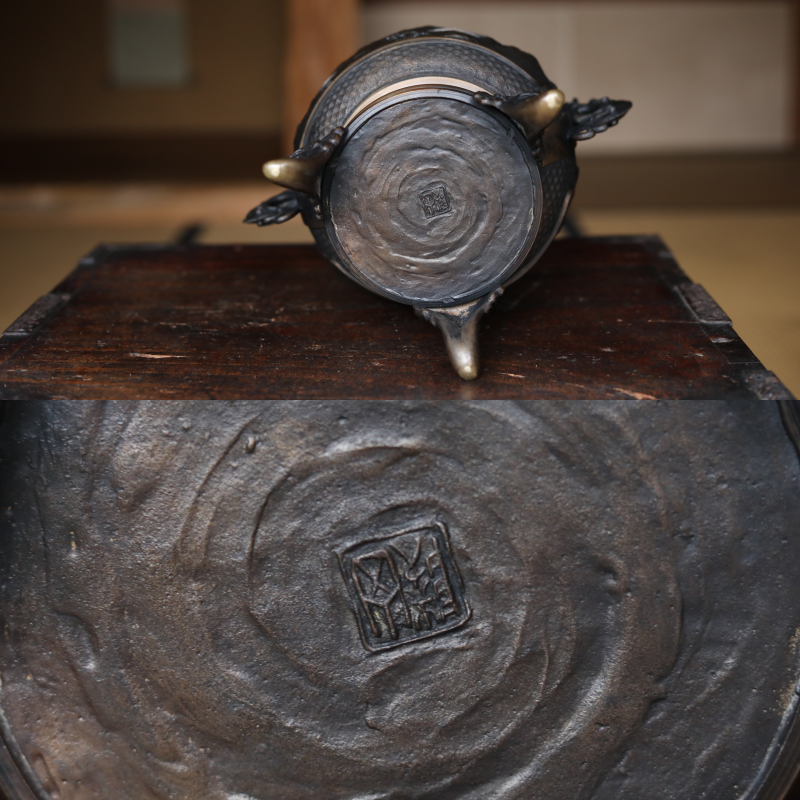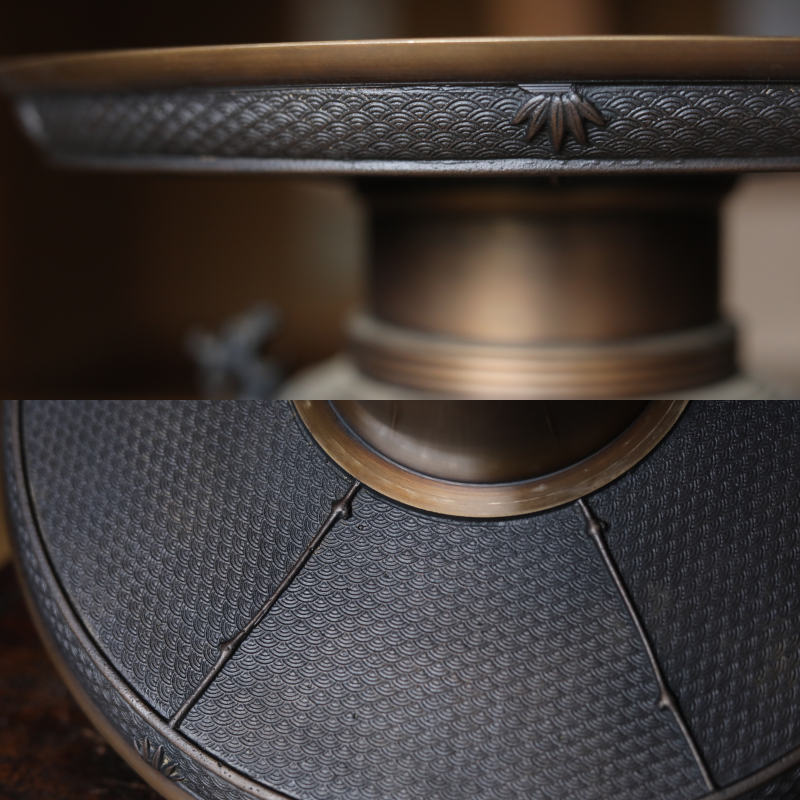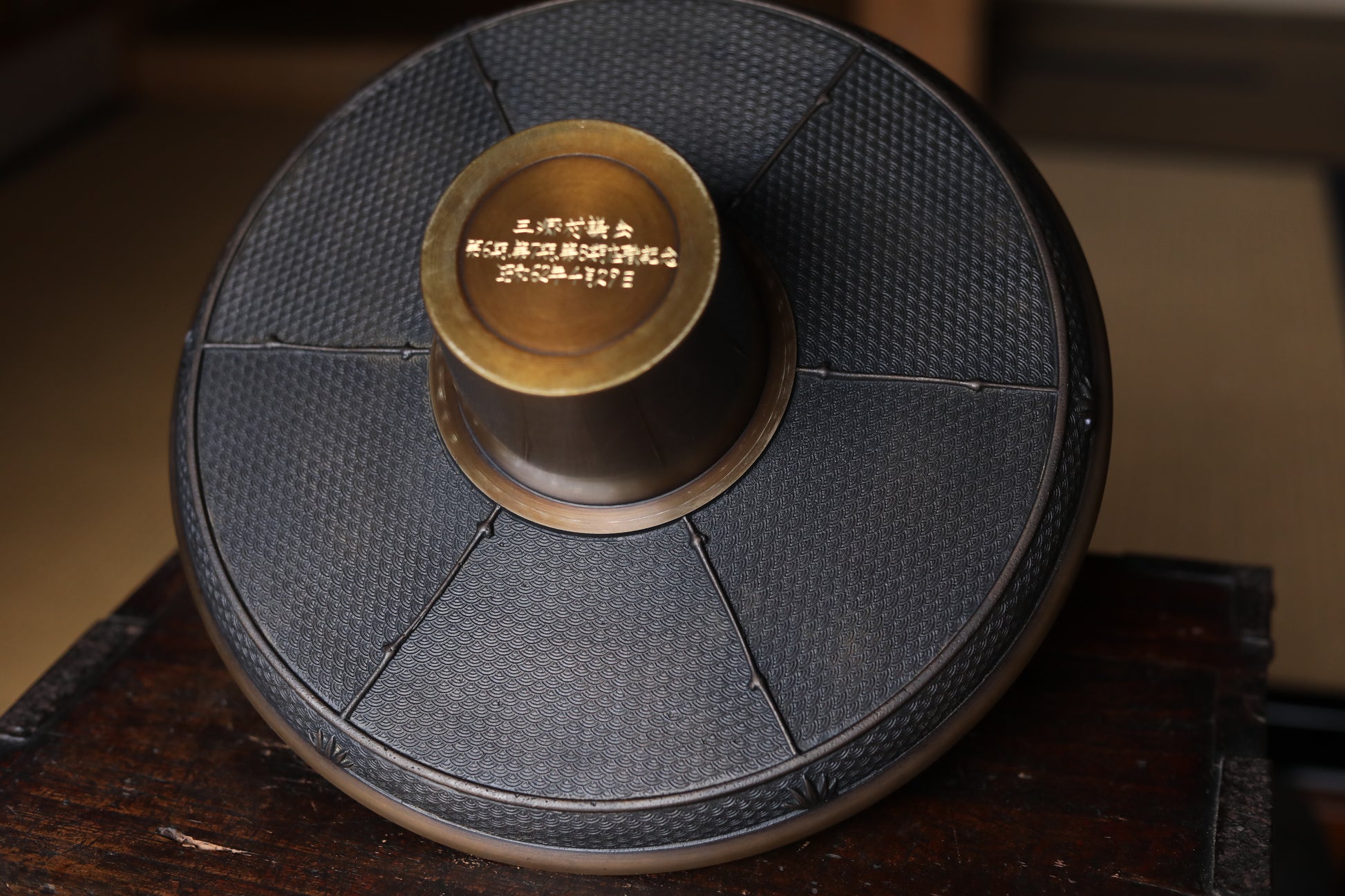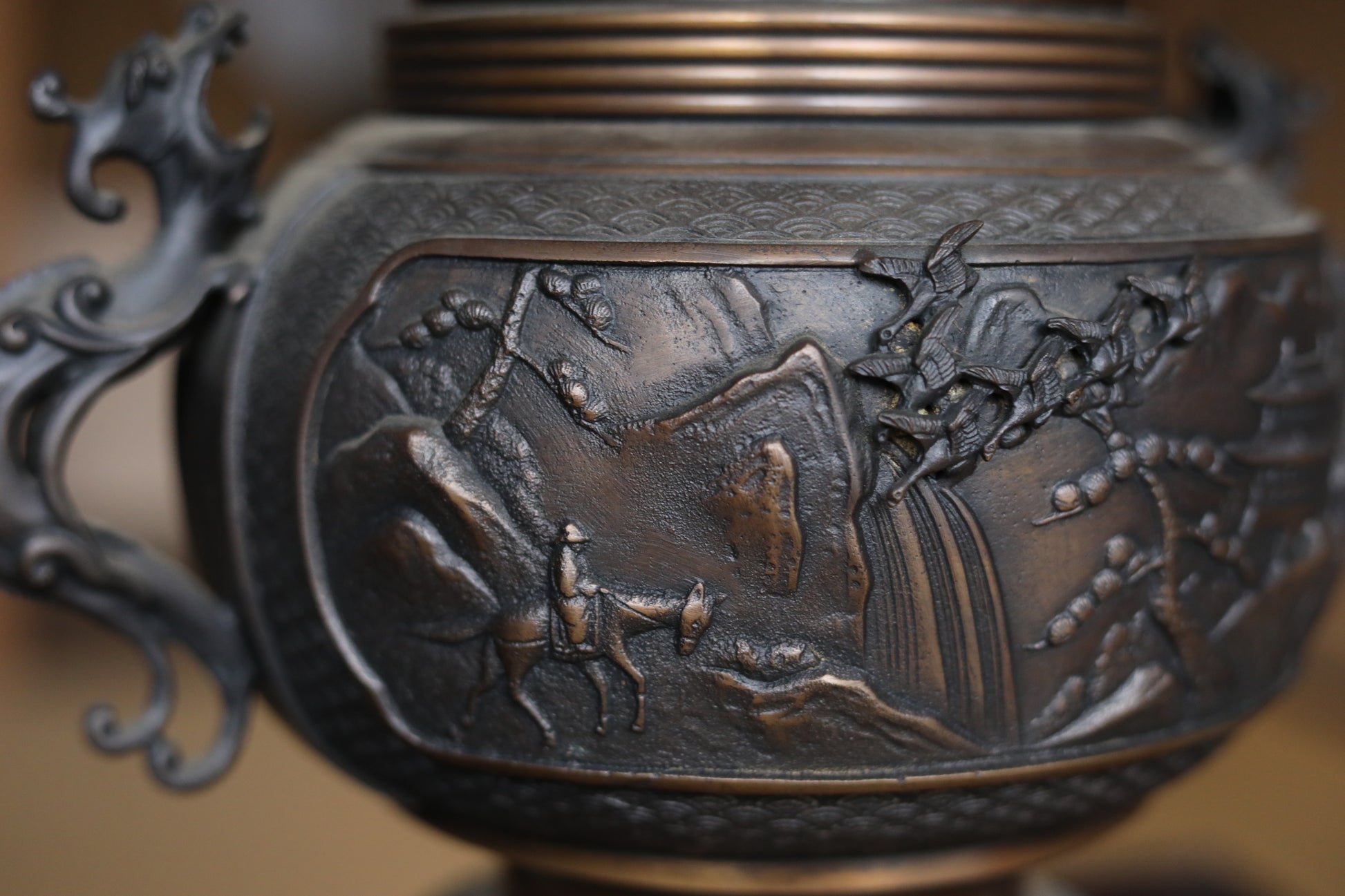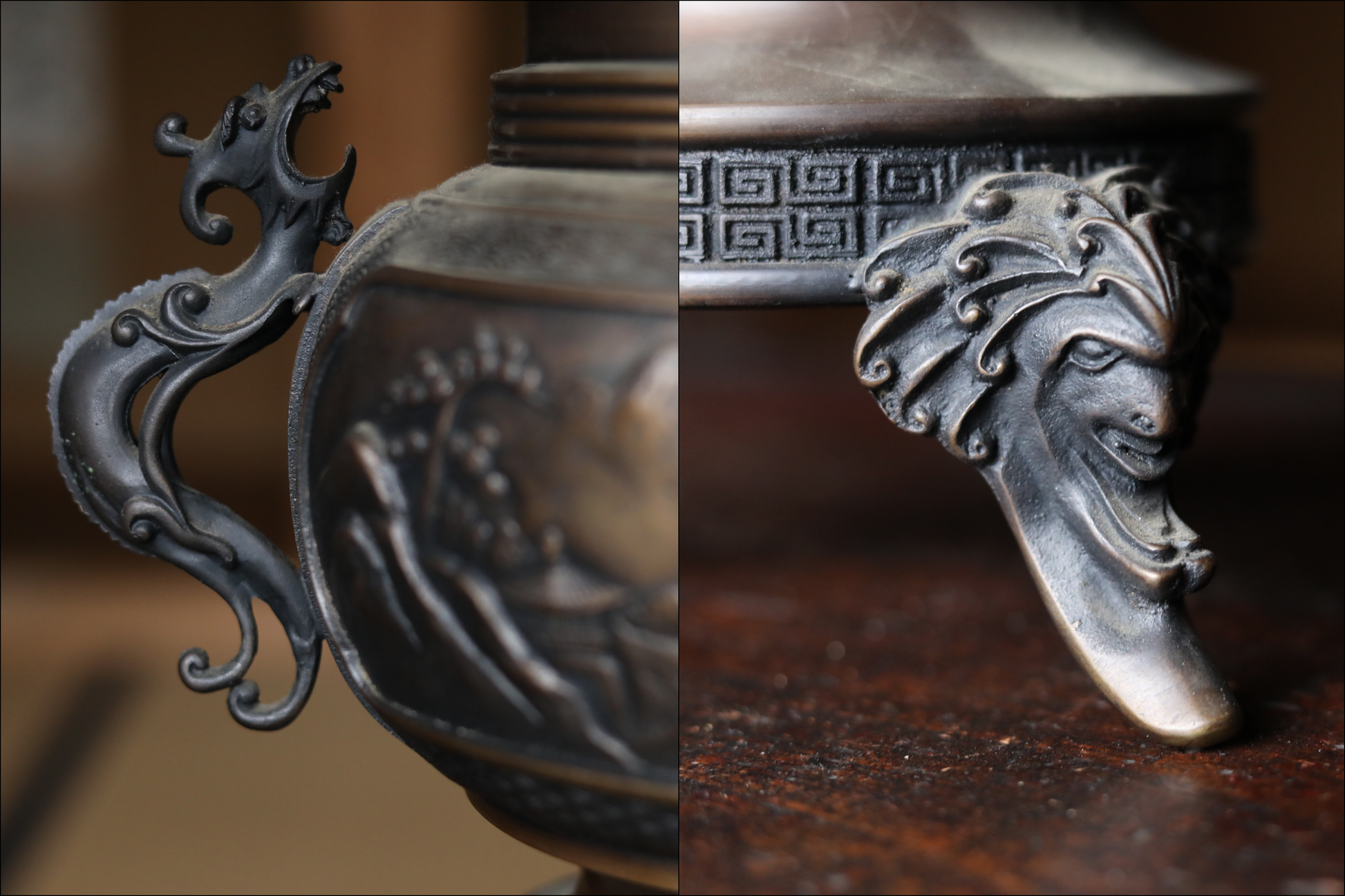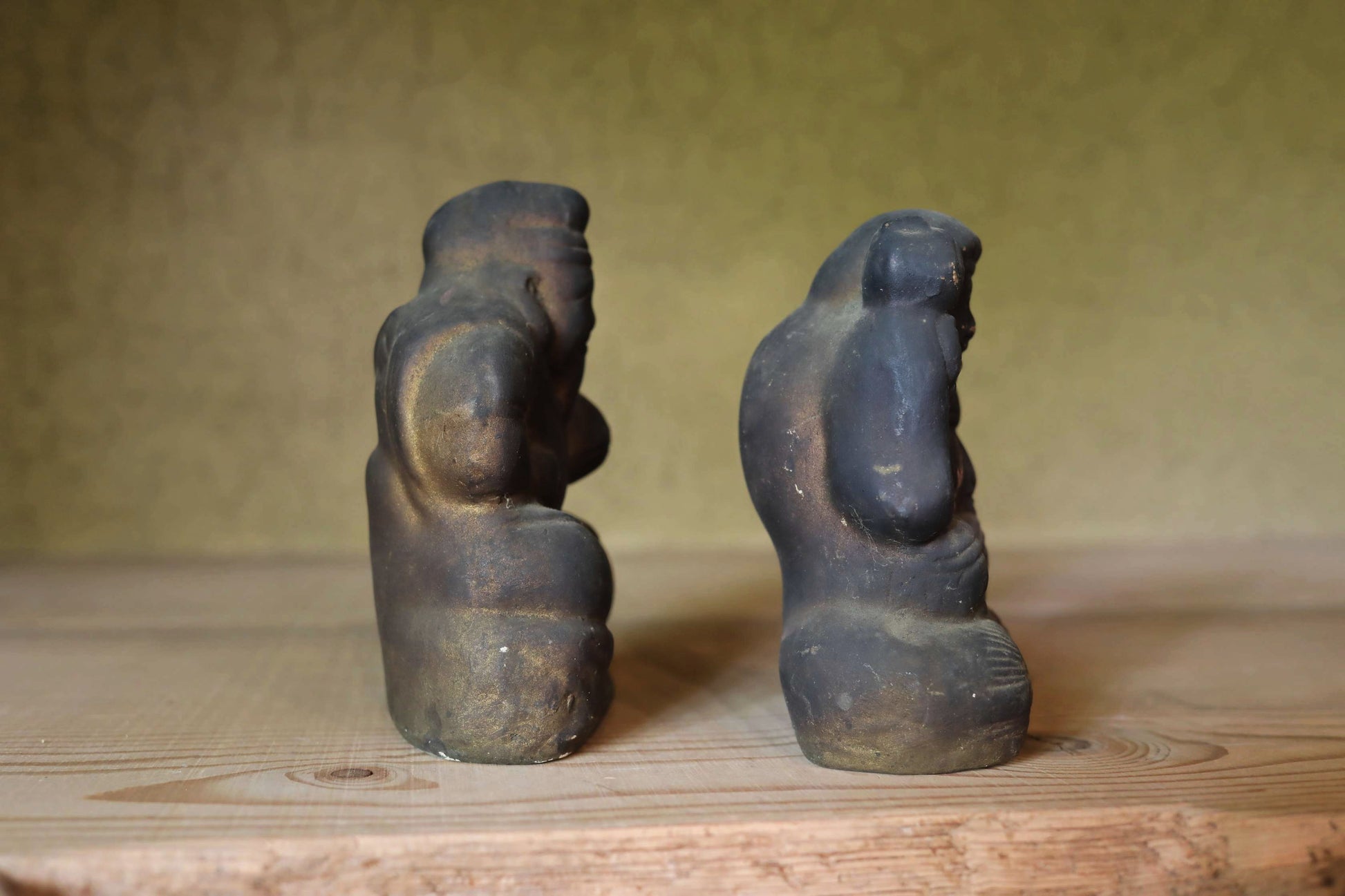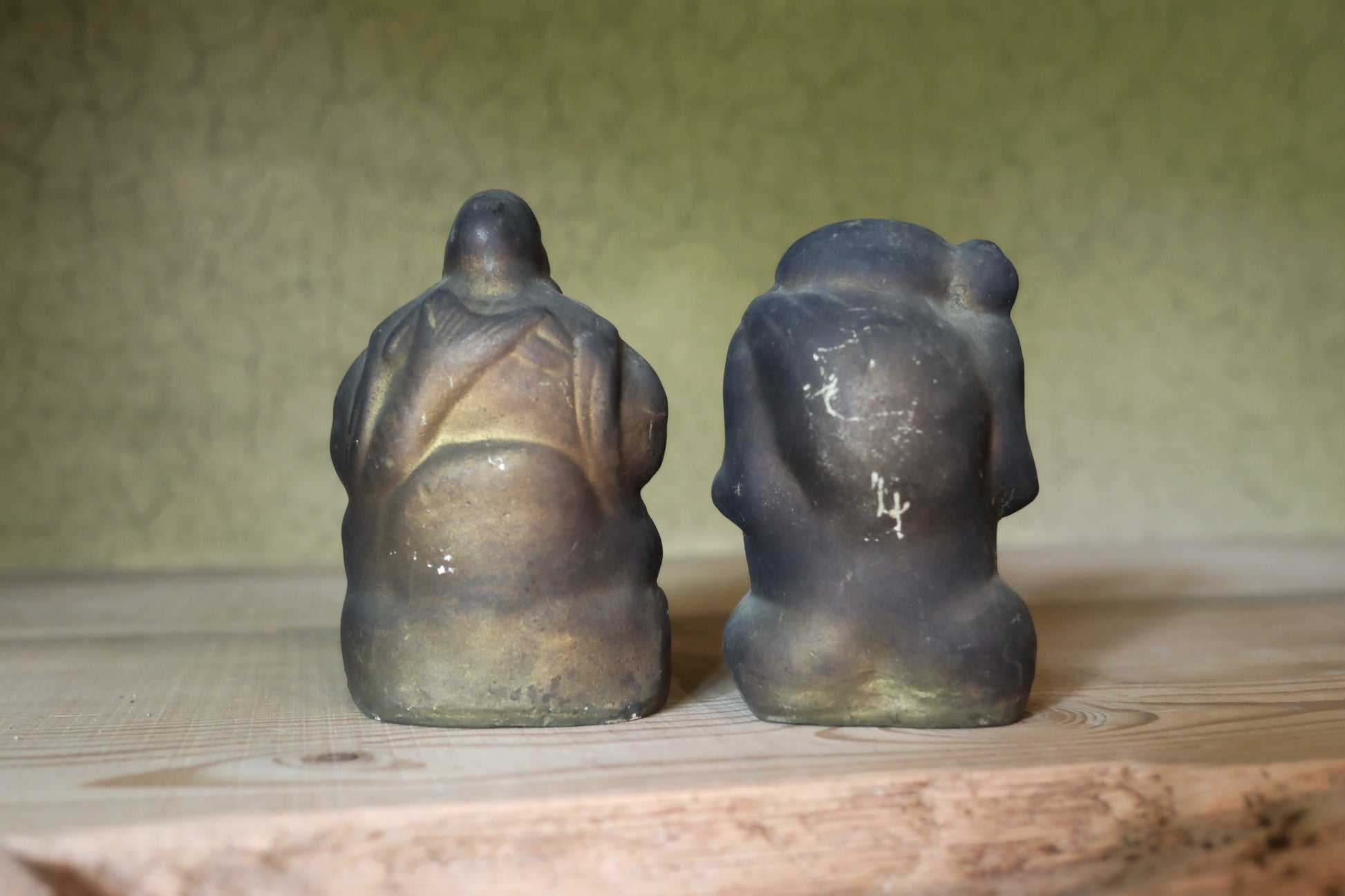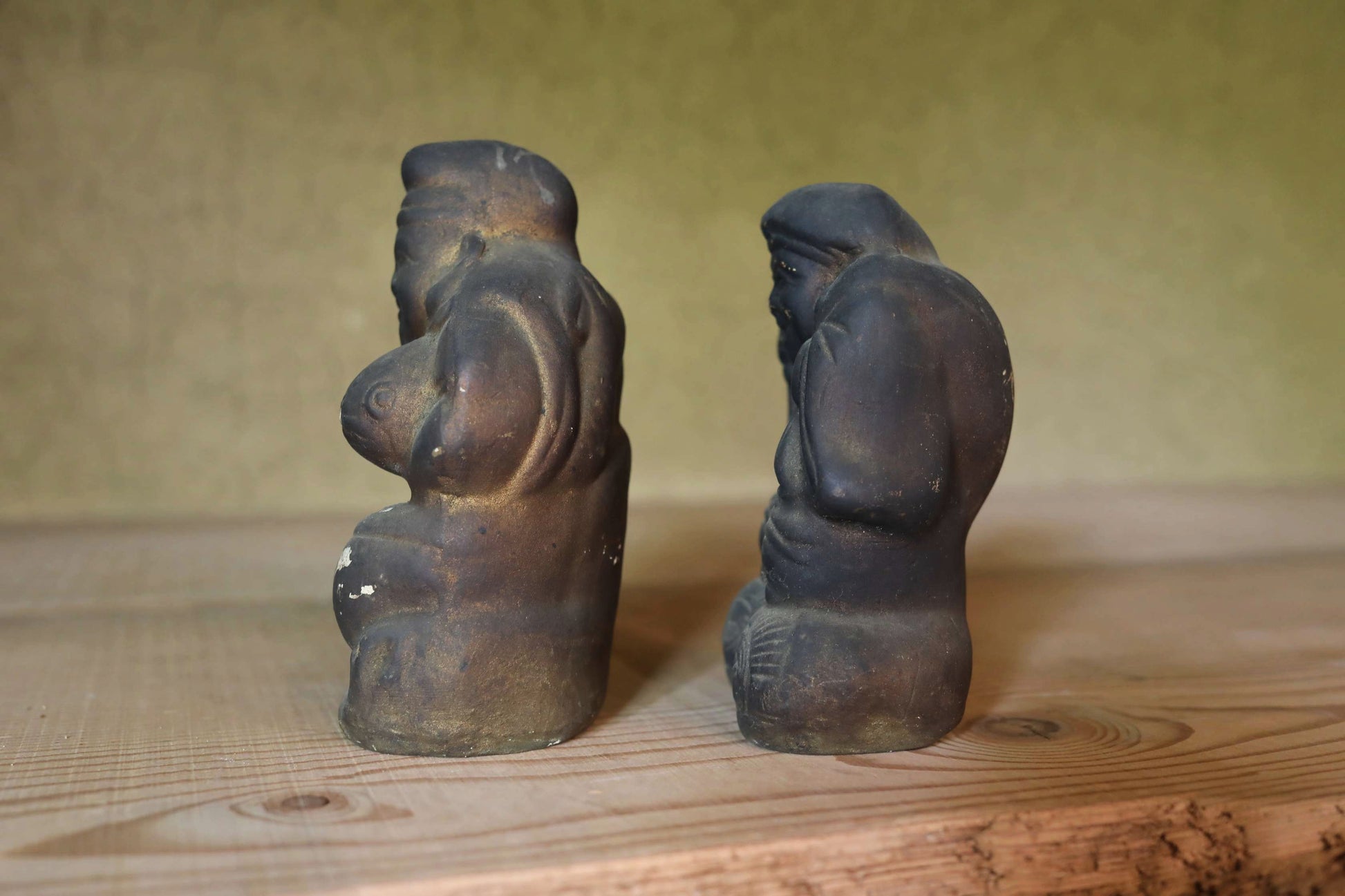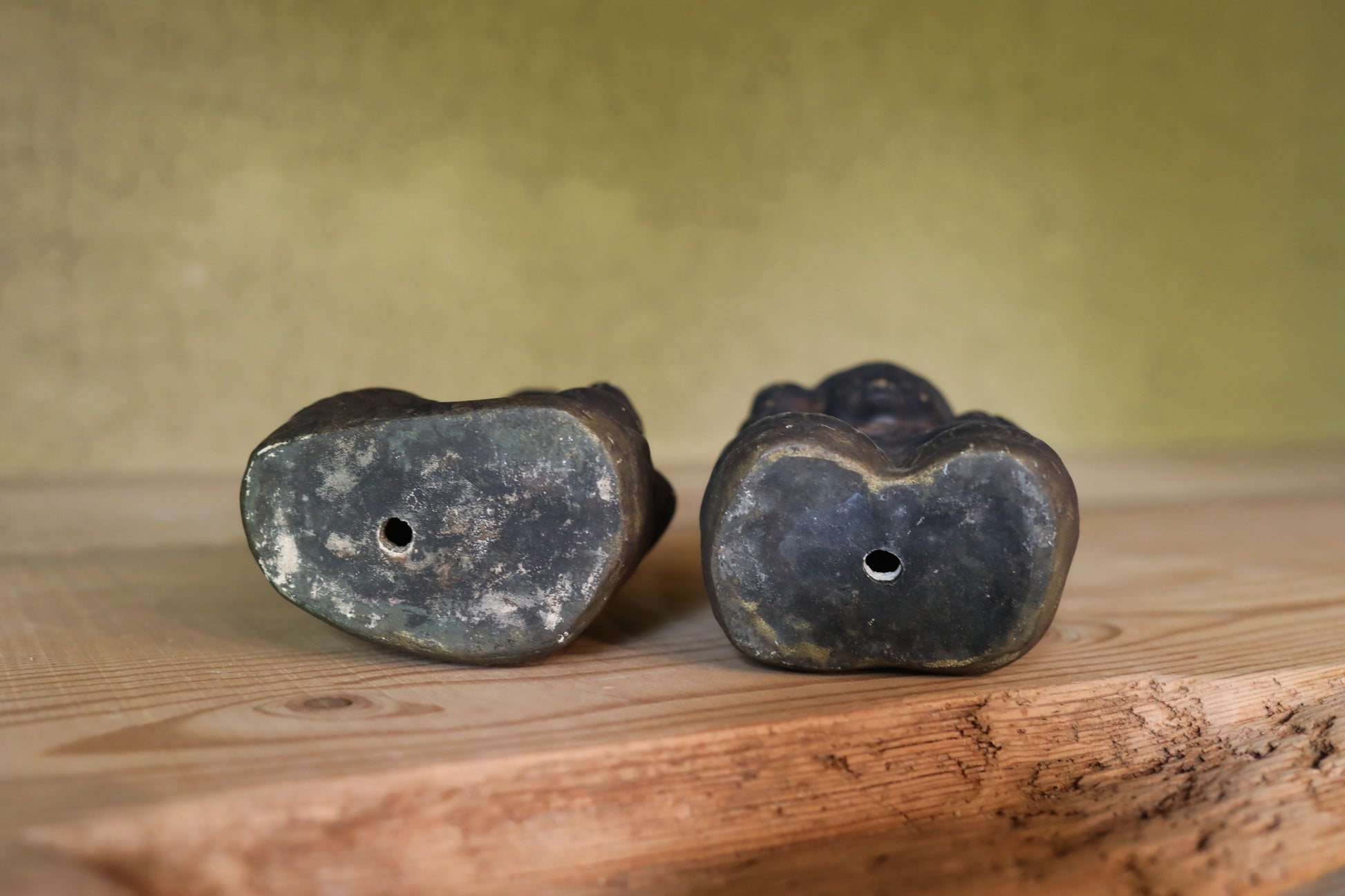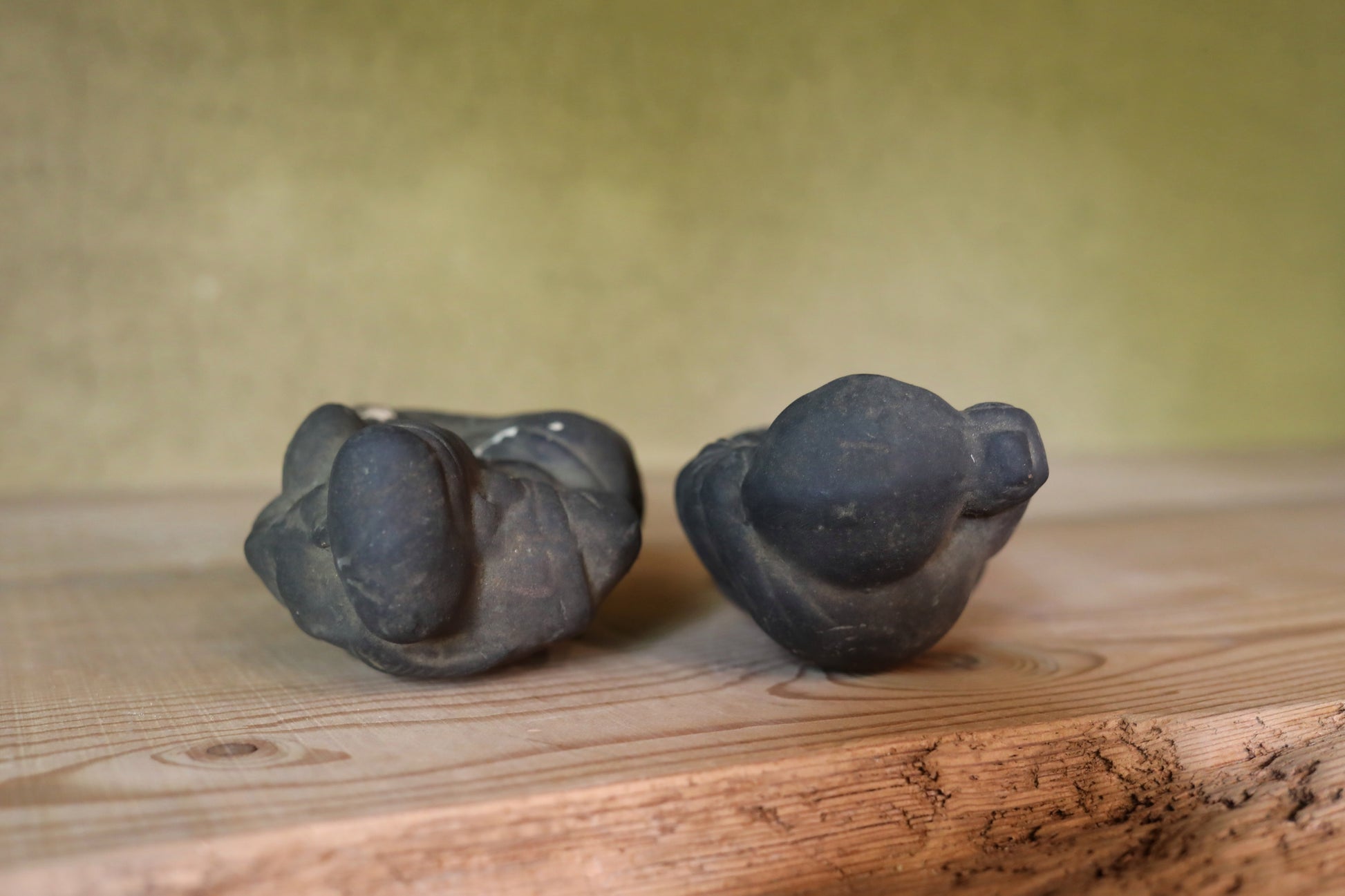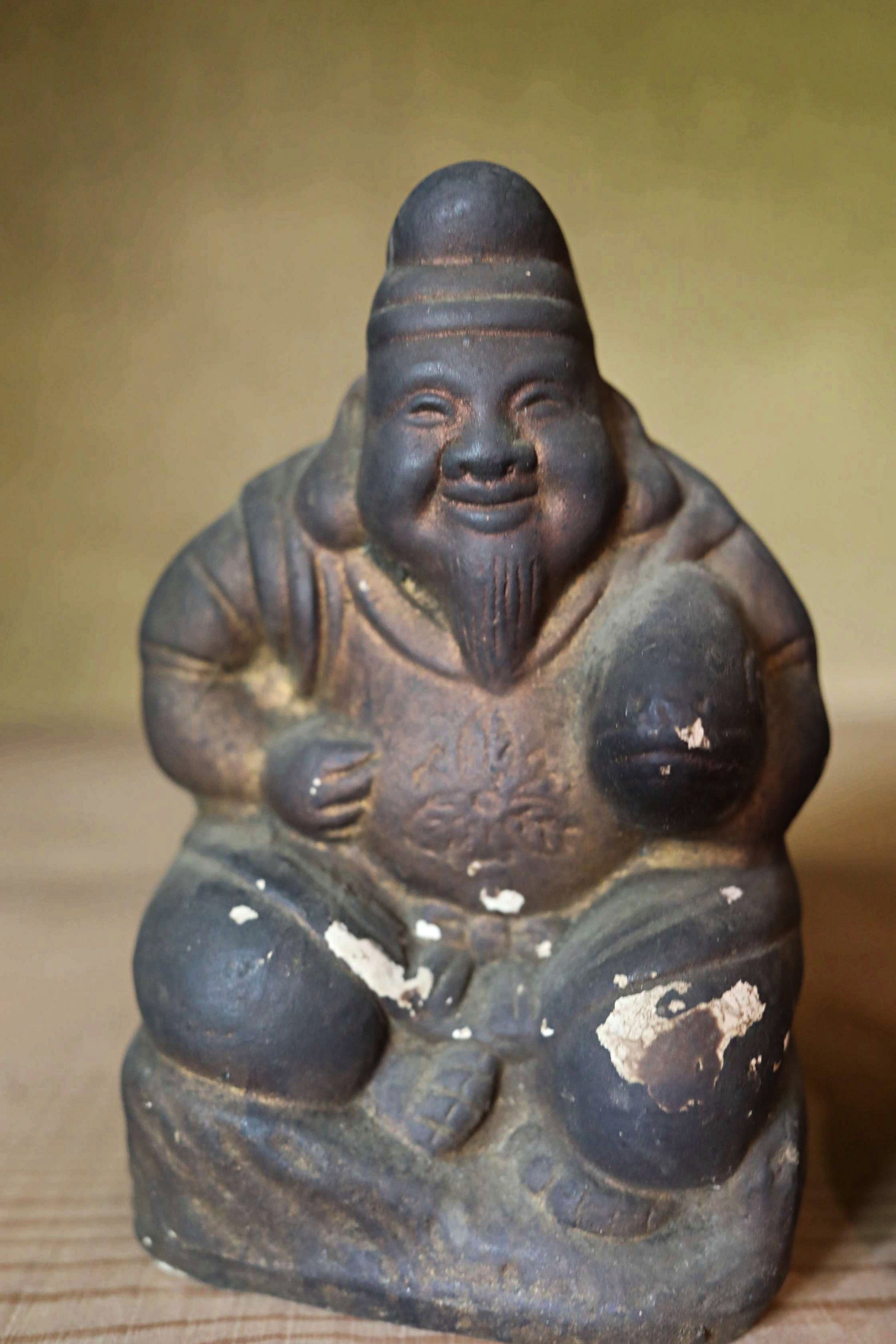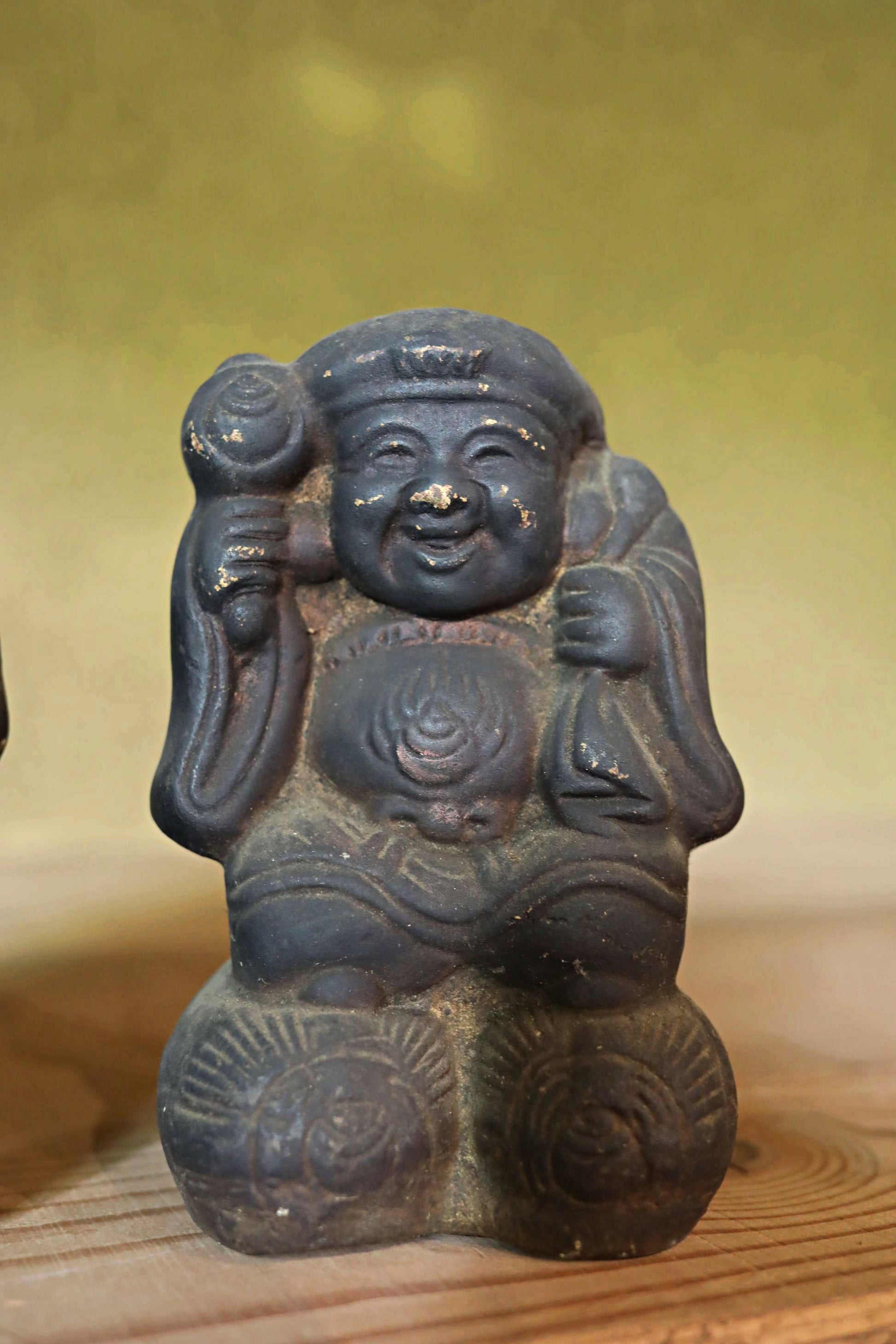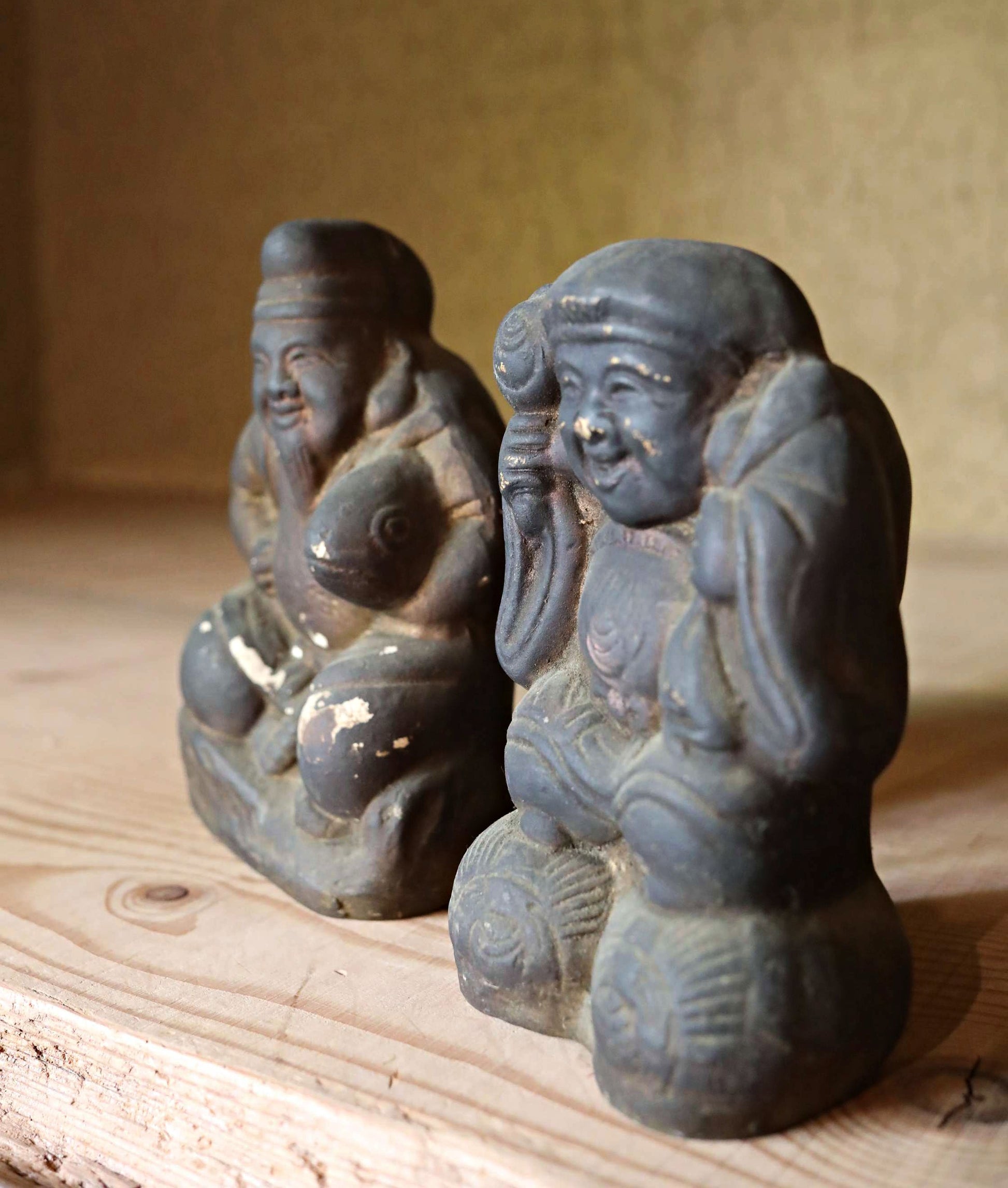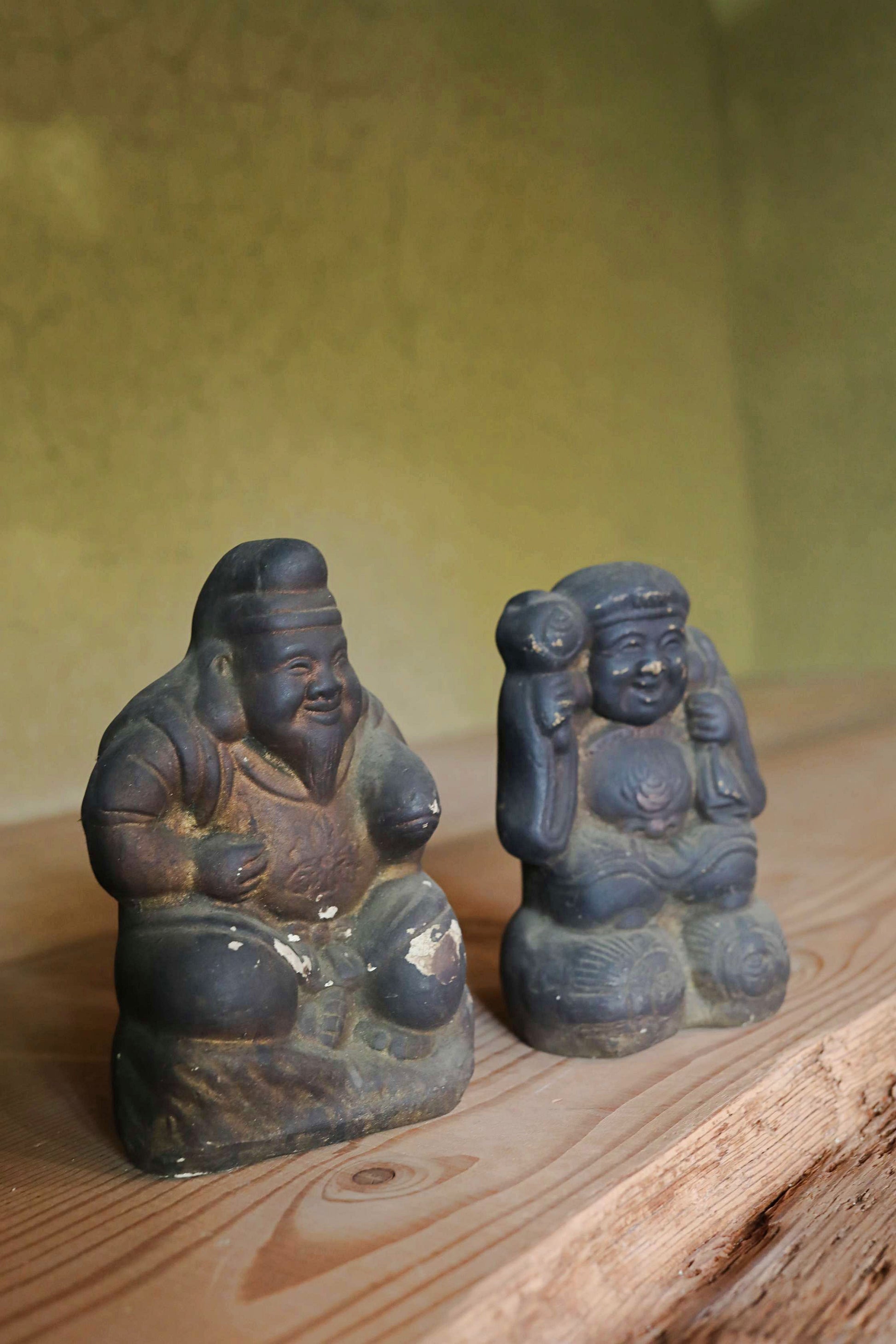Wabisabi Antiques
Japanese vintage bronze SUIBAN flower vase USUBATA H13in/H33cm/ Japanese antique 1800s soot-stained pottery dolls of two gods, Ebisu and Daikoku, the Seven Lucky Gods, Edo handmade craft H6.5in/16.5cm
Japanese vintage bronze SUIBAN flower vase USUBATA H13in/H33cm/ Japanese antique 1800s soot-stained pottery dolls of two gods, Ebisu and Daikoku, the Seven Lucky Gods, Edo handmade craft H6.5in/16.5cm
Couldn't load pickup availability
Size:
Weight:
Material:
A vase of this shape is called 薄端USUBATA a thin end. One of the metal vases introduced from China in the Muromachi period (1336-1573). The body of the vase has a wide, shallow upper plate, and the center opening can be removed. It is used in the Ikenobo and Koryu schools.
When actually arranging flowers, water is filled to the top of the hole and not into the dish-like part.
When decorated with a large branch, it looks very cool and gorgeous. In Japan, this vase is used in temples and aristocratic ceremonies.
It is decorated throughout with very delicate and intricate reliefs. The plate-like part at the top is especially wonderful, with lavish relief on the back side. Both ears are decorated with dragon motifs, birds flying in the mountains in the center, and even a person riding a horse can be seen if you look closely.
The back of the plate is inscribed with text, indicating that it was specially made as a memento.
The feet are designed with a lion's face, with its mouth open and howling.
Very well made item and ready to use.
It is powerful even if you just display it.
□ Size: H 13in × 14.2in(about H33cm×36cm )
□ Weight : 1320.3oz (9100g)
□ Material : Bronze
condition...
It is in very good condition, but there are small scratches and dirt due to aging.It's ready to use.
*************************
Ebisu and Daikoku, two of the most popular and often paired deities in Japanese folklore and are part of the "Shichifukujin , the Seven Lucky Gods". They are widely revered as symbols of prosperity, good fortune, and abundance.
Ebisu represents the abundance of the sea and the good fortune that comes from hard work and fair dealings. Daikoku represents material wealth, plentiful food, and a prosperous household. He is often seen as a protector of the home and granaries.
In Japan, there's a long-standing custom of enshrining Ebisu and Daikoku as guardian deities in shops and homes. These two gods, believed to bring abundant catches of fish—a staple in the Japanese diet—and bountiful rice harvests, were often placed above the irori, a traditional Japanese hearth where charcoal was constantly burned. This was essentially the heart of the Japanese kitchen and where families gathered to eat. As a result, the unglazed ceramic figures, worshipped for many years, would become covered in soot and turn black. These two deities were likely originally painted on their unglazed ceramic surfaces. However, the layers of paint are now covered in soot, with some areas flaking off. Despite this, their gently smiling expressions remain incredibly soft and serene.
□ Size:
Ebisu: H6.5in × W3.9in × D2.8in (about H16.5cm×W10cm×D7cm)
Daikoku: H6.1in × W3.9in × 3.5in (about H15.5cm×W10cm×D9cm )
□ Weight :
Ebisu: 18.2oz (517g)
Daikoku: 15.9oz (452g)
□ Material : pottery
condition...
There are scratches and dirt due to aging due to age
Shipping
Shipping
Though we ship items free to most addresses in USA and Europe, we may ask to pay additional fee for shipping to remote addresses where DHL/FedEx apply. Any orders can be cancelled in this case.
Combined shipping is available for purchase two and more items.Please contact in detail before ordering to avoid several payment transactions.
Due to increase of shipping fee to Australia and New Zealand, free shipping is not applied for orders to be shipped there from 1st, September 2024. We will inform customers of additional fee after receiving orders. Items will not be shipped until customers reply and in case there is no agreement with the tariff, orders will be cancelled.
SKU:22116,23641
View full details